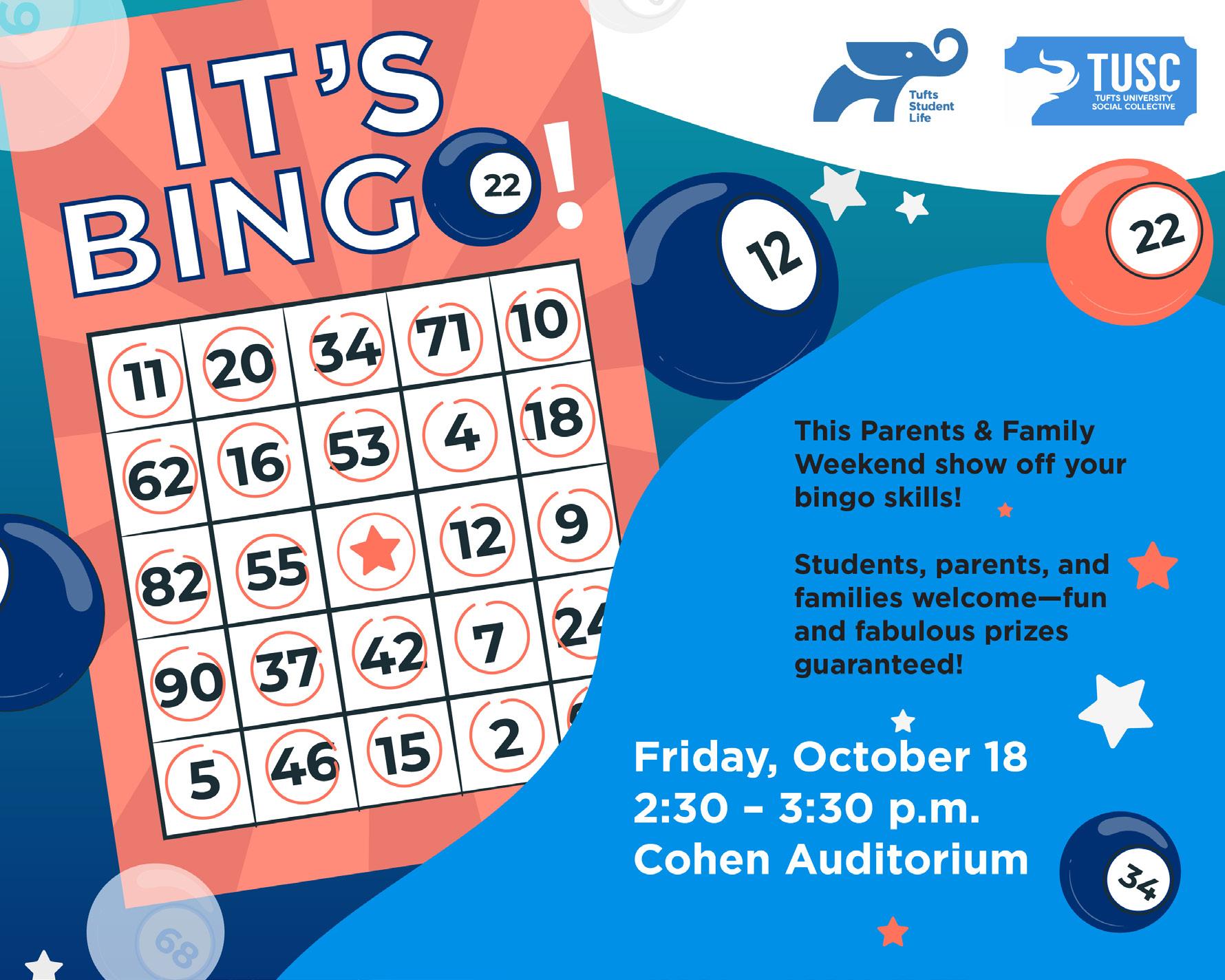The Tuf T s Daily



able rental home, in the country.
Rent prices in neighborhoods surrounding Tufts are rising rapidly, raising concerns for students and local residents alike. In Massachusetts, a minimum wage worker must clock 120 hours per week to afford a two-bedroom rental home.
“There is no place in the United States where a minimum wage job will get a family affordable housing,” Laurie Goldman, a senior lecturer in the department of urban and environmental policy and planning, explained.
Massachusetts has the second-highest housing wage, or the hourly wage a full-time worker needs to make to afford a reason-
To afford two-bedroom housing, a full-time worker needs to make $44.84 an hour. Near Tufts, this number is even higher, with an average housing wage of approximately $65 an hour.
“Anyone I know that is searching independently and isn’t inheriting a lease is paying $1200 or more,” Natalie Meulenbroek, a sophomore who recently signed a lease in the area for the upcoming year, said.
Kit Collins, vice president of the Medford City Council, noted the growing unaffordability in the area.
“You shouldn’t have to have two six-digit incomes in a household to be able to live here, or afford to buy a home
here,” she said, “but unfortunately, displacement has been going on for years.”
One problem Collins noted could be contributing to increased housing prices is that housing is increasingly owned by external corporations and not local residents.
“They don’t have any incentive to keep housing prices human-scale,” Collins explained.
Meulenbroek speculated that the landlords surrounding Tufts may also be taking advantage of Tufts’ limited supply of on-campus housing.
“They know that Tufts doesn’t guarantee off-campus housing, so students need to find a place


Shayna Levy Contributing Writer
The Student Garden Club, Sustainable CORE Fellows, TCU Senate and the Tufts University Social Collective collaborated for the third annual farmers market, which was held at the Campus Center on Oct. 4. The market featured local produce and student artwork, along with educational tabling regarding environmental justice and food insecurity at Tufts.
With the purchase of a $5 ticket, students could take home fresh produce from local farms and the on-campus Student Garden, purchase subsidized student artwork through TUSC and visit tables from various student groups on campus, including Engineers Without Borders.
Fresh produce came from local farms like those associated with the New Entry Sustainable Farming Project. It’s “important for students to
have access to fresh produce and know where their food is actually coming from,” Jules Lee, Garden Club’s maintenance manager, said.
To increase sustainability, the farmers market sourced its food from the Student Garden and New Entry Farms, a Tufts University Friedman School and Nutrition Science and Policy initiative.
“Everything that’s not taken is either given back to the dining hall for them to use or composted on campus,” said TCU Historian Caroline Spahr, a junior who has spearheaded the market since her freshman year.
Two main goals of the farmers market are “getting people in touch with local resources,” and making “fresh fruit and vegetables accessible to students,” Sierra Moll, a senior and co-program coordinator of the Sustainable CORE Fellows, explained.
The market was walkable and easily accessible for students, since it was held on

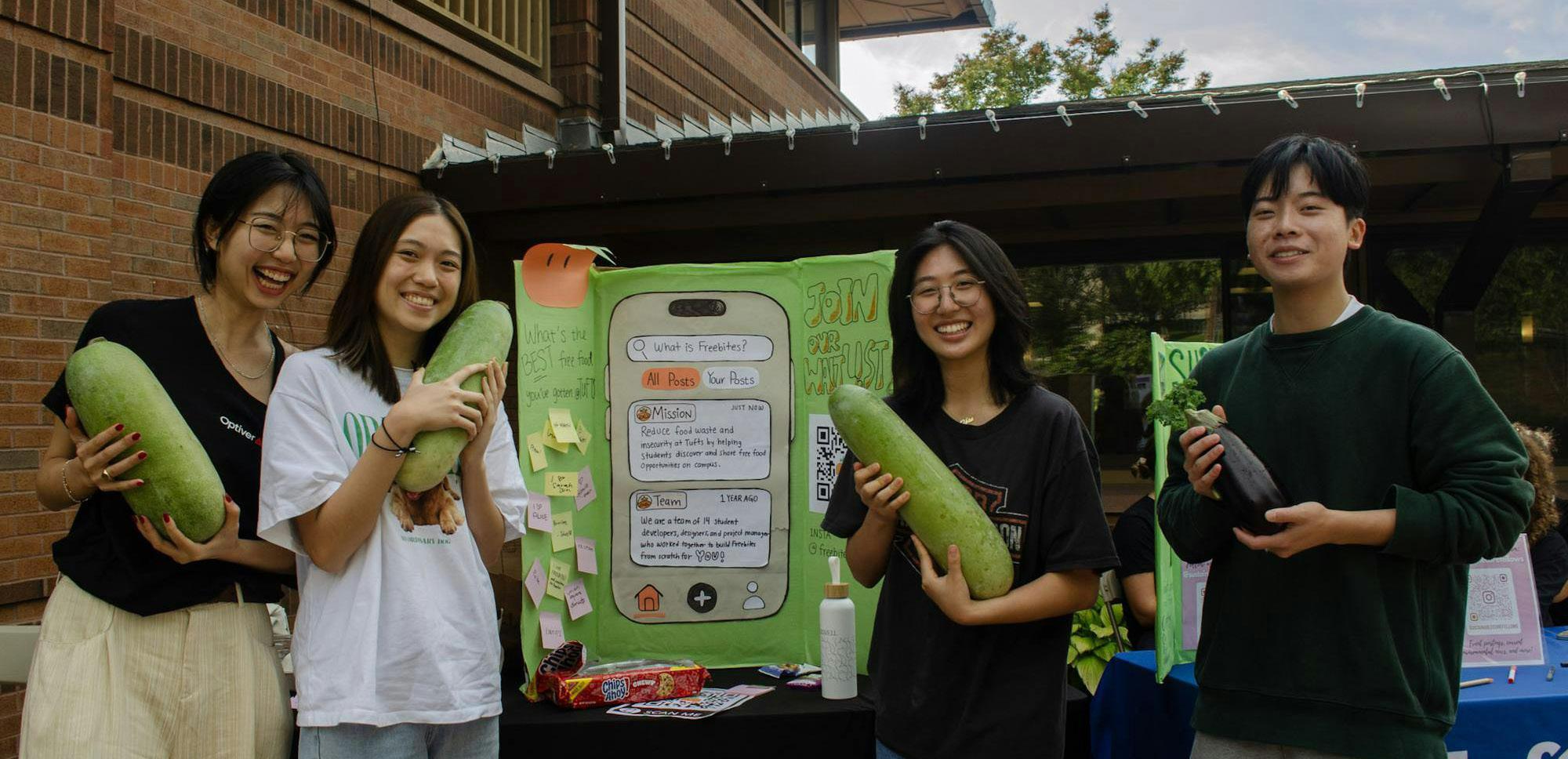
the Tufts campus. Moll also highlighted that because the produce was sourced entirely from the Student Garden and New Entry, rather than “big, industrialized agriculture,” the market was sustainable in that way as well.
Spahr started the farmers market in her first year as one of her projects as senator. “I’m



from Central Pennsylvania, so there’s a lot of farmers markets where I’m from,” Spahr said.
“I kind of wanted to emulate what I have at home and bring it here because that was just something I kind of missed from home.”
“We’ve continued it because it’s extremely successful every single year,” Spahr said.



For each market, TUSC brings in around 2,000–3,000 pounds of produce, but they “rarely have stuff left over,” Spahr said. “We definitely keep track of what’s popular and what’s not.”
In recent years, the market has expanded beyond local


in 1980,
Carly Hope Contributing Writer
“Grilled Cheesus” and “Tufts Crepes,” the popular, unofficial student groups hosting food vending events around campus, plan to continue functioning despite intervention into Grilled Cheesus’ operations from Residential Life staff and changing business plans.
Since the start of the fall semester, the two groups of firstyear students have been hosting events and vending food. Grilled Cheesus had been selling grilled cheese sandwiches in the Houston Hall common spaces until they were asked to stop by the Residential Life coordinators; they have since switched to hosting free events that occur less frequently. Tufts Crepes, who have been selling crepes on the sidewalk around Metcalf, are currently taking a break between events as they have started to work on a new project while expanding their operations.
According to the team behind Grilled Cheesus, who asked to remain anonymous because their previous activities had violated the Tufts licensing agreement, they were inspired to create their business after sharing Hodgdon Food-on-the-Run quesadillas for dinner one night.
“It was [a late Thursday night] where three of us went down to Hodge to get a quesadilla, and we were like, ‘This is a really good quesadilla … another step would be to make it a grilled cheese and repeat this on Thursday nights because it was the perfect, satiating craving,’” one founding member said. The group promoted their first event on Instagram with their account @tuftsgrilledcheesus.
During the event, members of the Grilled Cheesus team adopted an assembly line approach: some people would cook the sandwiches on the stove, while others took orders, assembled the sandwiches and delivered them to attendees.
“The nights I went to grilled cheese, a lot of people were there, and they were all having a good time,” first-year event attendee Thomas Park said. “They had music. The founders were working on the grilled cheeses, and then everyone was there and talking in the lounge room.”
The team behind Grilled Cheesus charged money in order to cover the cost of supplies.
“We really weren’t making a profit. It was pretty much like breaking even — if we were lucky,” one founding member said.
On Sept. 25, the Grilled Cheesus account uploaded a post on Instagram to announce their transition to free grilled cheese events.
“We would like to clarify that rather than for financial gain, the intention of grilled cheesus has always been and will always be to bring together students in the Tufts community,” the post read.

According to the Grilled Cheesus team, this post was the result of an email they had received from Samma Fuller, Houston Hall’s Residential Life coordinator. The email, sent out to all Houston residents, stated that “While [the Residential Life staff] appreciate the community engagement this program has created, we want to remind you that this is a violation of the Tufts University License Agreement. Students are not permitted to conduct any business for profit in the residential halls, including the sale of food. We kindly ask that you discontinue this activity to avoid further policy violations.”
In a statement to the Daily, Patrick Collins, executive director of media relations, explained the reasoning behind this policy.
“The university prohibits the operation of businesses in dorm rooms and residence halls to protect student health and privacy and to respect state licensing laws requiring proper certifications prior to operating certain types of businesses,” Collins wrote.
Fuller explained in a statement to the Daily that the Residential Life staff was alerted about Grilled Cheesus through their social media presence. She stated that Residential Life staff encourage student-organized events in residence halls, as long as they follow university policy.
“Students should work with their [Residential Assistant] if they want to see specific programs in their residence hall.
We encourage students who are interested in programming on their own to consult university policies before moving forward,” Fuller wrote.
Members of the Grilled Cheesus team were understanding of this response and opted to make their events free and less frequent.
“We really do rely on people’s generosity and donations to keep it going, but unfortunately, I think we’re gonna have to make it probably a once-a-month or maybe bi-weekly thing, just based off of our lack of funding,” one founding member said.
The founders said that they are interested in potentially becoming an official club to get funding, but until then, they will be paying for supplies out of pocket and relying on donations to continue hosting events. The group said they may start a GoFundMe campaign on their Instagram page to raise money for future events.
Another student-led food business, Tufts Crepes, hosted its first event on Sept. 9, where they sold crepes near Metcalf Hall.
“We’ll go ahead and usually sell close to 60 crepes. We sell out every single time. Customer feedback has been very good,” first-year Kai Kaplinsky, one of the co-founders of Tufts Crepes, said.
Kaplinsky, along with his business partner Elie Afflelou, said that they founded the project because they saw a market for more dessert options at Tufts dining halls.
According to Kaplinsky, the crepe project currently has a profit margin of 85%. Due to this success, the duo are looking to expand their team and business. According to Kaplinsky, they are hoping to expand their team by selling shares of the project for $300.
“I would say we’re looking for people to help us run so we can get more people involved,” Kaplinsky said.
The duo said that going forward, their goals are to improve their product and grow their audience. According to Kaplinsky, they have already signed with a local start-up company, have plans to sign deals with restaurants in Medford and are currently in talks with a French news company. Kaplinsky and Afflelou are also creating a marketing agency to help other students on campus advertise their businesses. The account for this agency can be found at @jumbo_reach on Instagram.
Afflelou and Kaplinsky also said they are currently in talks with administrators to get official certification from Tufts.
“The biggest thing we want [people] to know is we’re not just selling crepes. We’re here to hear what people want. We want to know exactly what they want, and we want to provide it to them,” Kaplinsky said. “So I want them to feel free to DM us. Any suggestions, concerns … we’re here to listen.”
continued from page 1
to live, and people are really preying on that stress and that insecurity and think we’re a little bit naive. I think it’s very predatory,” she said. “If [the rate of rent increase] is linear, I don’t even know how anyone could justify living off campus next year if it’s just going to continue to increase.”
Goldman suggested that increasing the housing supply could be one way to address this issue.
“One way of getting more supply in a finite space is to build bigger. Build in other places where you haven’t had housing, or build in places where there is housing but build more densely,” she said.
The Medford Planning Committee has been working with a zoning consultant since the beginning of the year to address this issue. Collins, who is collaborating with the committee, elaborated on the project.
“One of my main goals with the project … is to go neighborhood by neighborhood, corridor

by corridor, and say, ‘OK, where in each neighborhood does it make sense to make it easier for developers to add density?’” she said. “Let’s change our zoning so that it’s easier for us to work with, and ideally recruit, really good developers to come in and build more homes in Medford.”
Additionally, Collins mentioned several ongoing projects to renovate Medford Housing Authority properties. Specifically, they are adding height to tow-
ers in Medford Square and renovating the Walkling Court in Hillsides.
“That is one of the most exciting things that we’ve gotten to approve or oversee,” Collins described. “Not only are they increasing the number of units within that development, but they’re renovating existing units, adding new units and creating a space that will have really high-quality, affordable units for people with disabilities and
households that include people with disabilities.”
In addition to increasing the housing supply to address this issue, Collins also believes that bringing back rent control could be a crucial solution for the surrounding area. She explained that rent control was illegalized on the state level many years ago, but that it could be a key mitigator for increasing housing prices.
“Until we have reasonable local tools to make it so that 20%
rent hikes are no longer allowable … It’d be really hard to keep people in homes until we have a tool to say, ‘You know what, you can’t price stuff to force people out of their apartments,’” Collins said.
“It’s really more appropriate to let communities decide for themselves how to handle policies within the community,” she explained. “If rent control were to be legalized, that’s not to say that every city would be forced to implement the same policy. It’s merely putting the controls back into the hands of communities to say, ‘Is this something that we think we need, that we think would help us?’ If so, let’s craft a policy that works for us.”
While creating more housing, rezoning and fighting for the return of rent control are important factors for stabilizing rent prices, Goldman stressed that there remains much to be done.
“The gap between what we need and what there is, or what can be built in the near future, is so big that we’ve got to be thinking about how to do a whole lot more,” she said.
Michael Onysko News Editor
Editor’s Note: Toby Winick is a staff writer at the Daily. Winick was not involved in the editing or writing of this article.
Following the completion of a social probation issued in April 2023, the fraternity Zeta Beta Tau will resume hosting social activities starting this fall, while remaining under disciplinary probation.
Mary Kate Kelley, director of orientation and student experience, wrote in a statement to the Daily that ZBT was “found responsible for alcohol policy violations including providing alcohol to an underage person, failing to comply with social event policies, other behaviors that pose a risk to safety of self or others, and open container in a public or open area.”
“Essentially, you’re not allowed to serve alcohol at all at a party, and people can only bring in alcohol if their ID is over 21 and then they need to keep it on their person, or in a fridge or some area where people aren’t going to grab it,” ZBT President Toby Winick, a junior, explained. “At a party in spring 2023, the fraternity broke those rules.”
Kelley also noted that “ZBT lost the privilege to host social events until this Fall and will remain on probation through the spring semester, with the privilege of hosting social events.” Under its disciplinary probation, which will continue through May 23, 2025, ZBT is “permitted to conduct operations as usual,” as per the Residential Life and Learning website. However, if ZBT is found to violate the terms of disciplinary probation or any
other university policies, it risks having its recognition revoked by the university.
“ZBT is in the process of finalizing their final sanctions,” Kelley wrote. “Once completed and approved by Community Standards, they must follow the Social Event Registration Process that all houses must follow to host social events.”
According to Kelley, while under probation, ZBT was required to engage in several leadership trainings, as well as a Green Dot training session and a Social Event Training with its national office. ZBT was also mandated to write a “historical transition document” for the incoming executive board that outlines lessons learned during probation and creates recommendations for the future.
While ZBT was prohibited from hosting social events under disciplinary probation, they were still allowed to host other events.
“Even though the chapter couldn’t host social events, I’m still pretty satisfied with the philanthropy events, the alumni outreach and brotherhood events that we did,” Winick said. “I still think that, for instance, going on a chapter retreat both semesters last year was a highlight.”
“[ZBT plans] to formally register some social events. That’s very exciting for [the] guys,” Winick said. “But [we] definitely [aim] to make sure that everyone is on the same page as far as Tufts safety requirements, and not just theirs, but our national [chapter] and [executive board’s] expectations for conduct and rules during events.”
According to Winick, the fraternity currently has about 20 brothers and their incom-
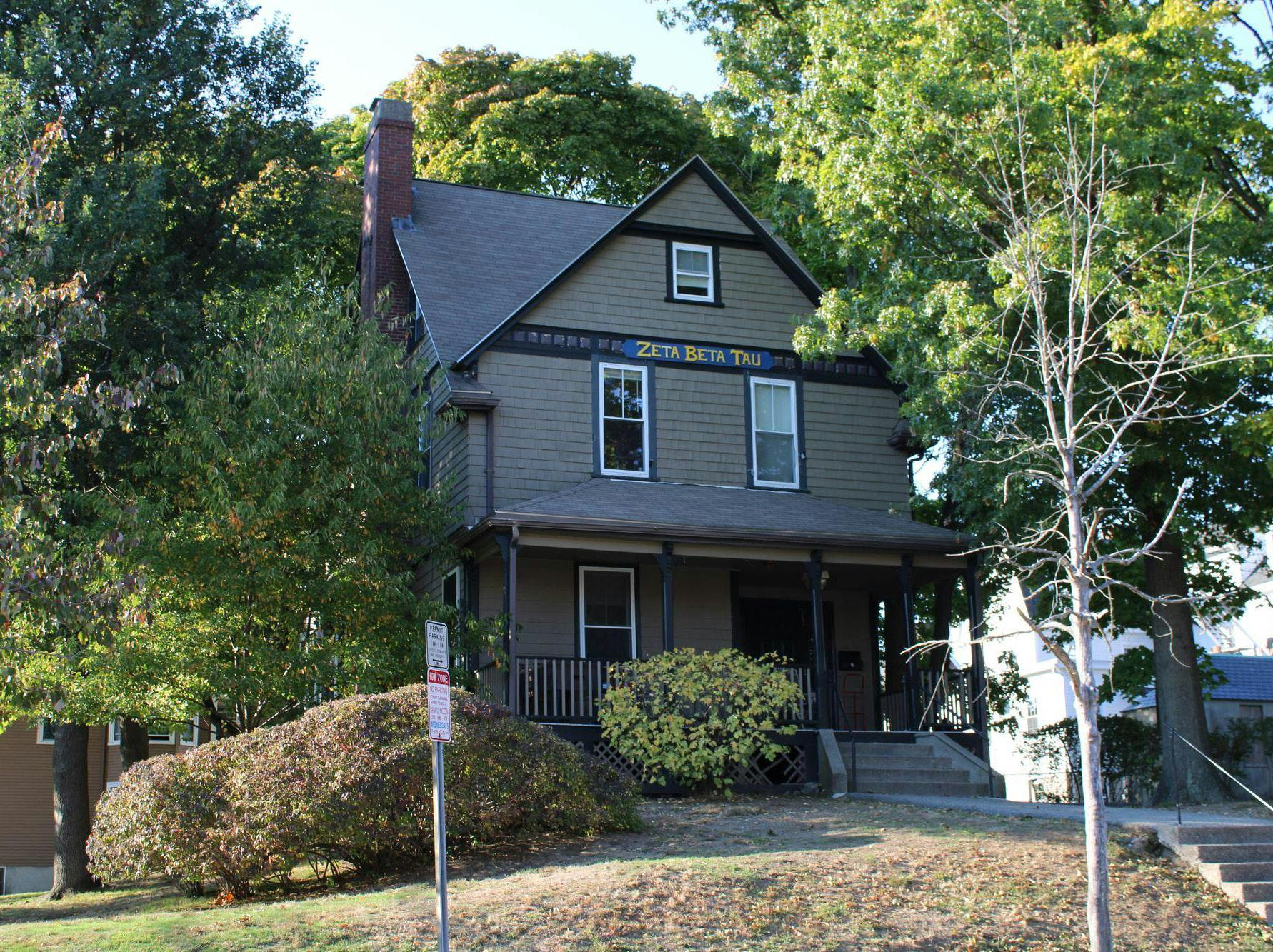
ing rush class had eight people. Winick is looking forward to “begin to know our new rush class, do fun things with them [and work] on alumni and philanthropy [events].”
Samuel Goldstone, a senior and ZBT’s risk manager, shares that ZBT has two main goals for their future plans: social experiences and brotherhood development.
“Now that we’re able to host social events, it’ll be a better experience for brothers since they’re going to be able to have their friends come to the house a lot more,” Goldstone said. “[This will] hopefully create a really nice comfortable environment for [new members] that want to come join the fraternity next year.”
Goldstone also shared some of the difficulties ZBT faced recruiting new members under social probation.
“It’s a lot harder to have sophomores even know about the chapter if you’re not throwing social events at all,” Goldstone said. “Last year, we didn’t throw any events. When I was talking to my friends who were freshmen and are sophomores now, they were like, ‘I didn’t even know ZBT was a real frat.’”
Goldstone shared that he is looking forward to having the new members experience larger social gatherings and events, along with upholding the fraternity’s core values of intellectual awareness, social responsibility, integrity and brotherly love.
“We have a really good class of new brothers this semester that are super excited to get to work planning our social events and getting things on the calendar,” Goldstone said.
Goldstone elaborated that he joined ZBT because of its culture of community and academic success.
“One main reason [I joined ZBT was] I was looking for a community of people who I could hang out with, do fun things with … a community of people who I thought would be helpful to my development as an individual,” he said. “It’s all about creating a good community where we’re focused around good values, and we really try as a chapter to live up to those values.”
MARKET
continued from page 1
produce — something Spahr has cited as a great addition. She said bringing student art to the fair was “one of the best things” they have done. “There’s been a lot more collaborations with other clubs,” Spahr said.
She also emphasized that the consistent growth of the farmers market has shown how important it is for Tufts students to have access to fresh locally-grown produce.
In addition to including student art, the market has “a more educational aspect to it
now,” Spahr said. A newer goal of the market is to educate students about environmental justice topics such as food deserts and food insecurity through interactive activities.
Lee described how Engineers Without Borders featured an interactive map that depicted the location of food deserts. Food deserts describe areas where residents lack access not only to grocery stores but to stores that have affordable, fresh food.
The Japanese Culture Club was also at the market, sharing recipes for Japanese dishes that are “cheap, easy, and
affordable for college students,” Lee said. Access to recipes like these and affordable fresh produce are important to college students who often do not have access to expensive ingredients or the time to cook complex meals.
The Student Garden provided produce from their garden as well, which is located near Harleston Hall. Students can pick their own produce from the Student Garden, and Lee emphasized that a goal of the Student Garden Club is to be “an advocate for raising [discussions of] food insecurity on campus” and they “want
students to have access to those green spaces.”
The Sustainable CORE Fellows is a “peer-led student organization that focuses on environmental justice,” Moll said. They work to bring environmental justice and sustainable action to people on campus.
“Environmental justice and sustainability isn’t everywhere,” Moll said. The CORE Fellows also work to promote sustainability and environmental justice to student organizations across campus.
Looking toward the future, Spahr said she is now working
to ensure the sustainability of the farmers market and make it “part of Tufts culture.”
“We want this to continue, even after I graduate,” Spahr said. The TCU is working with Provost Caroline Genco to institutionalize the market and ensure that it will remain a part of sustainability and food justice efforts at Tufts in the future.
“Cultivating and producing your own food is really magical,” Lee said, and adds that the Student Garden Club wants students to take advantage of that.
Tufts Health Service is now providing medication abortions. Here’s what that looks like
Carly Cohen Staff Writer
Originally published Oct. 15.
Tufts Health Service has begun to provide medication abortions, a method for terminating pregnancies up to 11 weeks.
“Essentially, medication abortion is the process of using … two different medications to end the pregnancy,” Dr. Marie Caggiano, medical director of Tufts Health Service, said. “Medication abortion is very, very safe and effective … up to [the] first trimester [of a] pregnancy.”
Caggiano explained that the medication abortion procedure involves two different drugs. The first medication, called mifepristone, blocks the hormone progesterone and prevents a pregnancy from continuing to grow inside the uterus. The second medication, called misoprostol, prompts the uterus to then expel the pregnancy.
According to Caggiano, after taking misoprostol, side effects typically include cramps and bleeding that can last for several days until the pregnancy has terminated. Once both drugs have been taken, Tufts Health Service will check in with the individual to ensure that the pro-
cess went as expected and that their pregnancy has indeed ended.
Caggiano emphasized the privacy measures that are in place for students, particularly those who have insurance from states where abortion has been restricted.
“Getting the abortion in Massachusetts is still legal, even if your health plan is in Texas, and there are ways that we can work with the student and the insurance company to try to minimize the risk of an accidental disclosure,” she said.
She further explained that all services provided at Health Service remain confidential.
“For students who received care at the Health Service, we’re not sending out any information, nor do we bill insurance. So for your visit at the Health Service and medications that we give you at the Health Service, there isn’t anything sort of leaving the Health Service that could indicate what service a person was receiving here,” she said.
The addition of abortion services has sparked widespread support among the student body. Ashton Gerber, social media coordinator for Tufts’ Sex Health Representatives, discussed a sense of excitement among students.
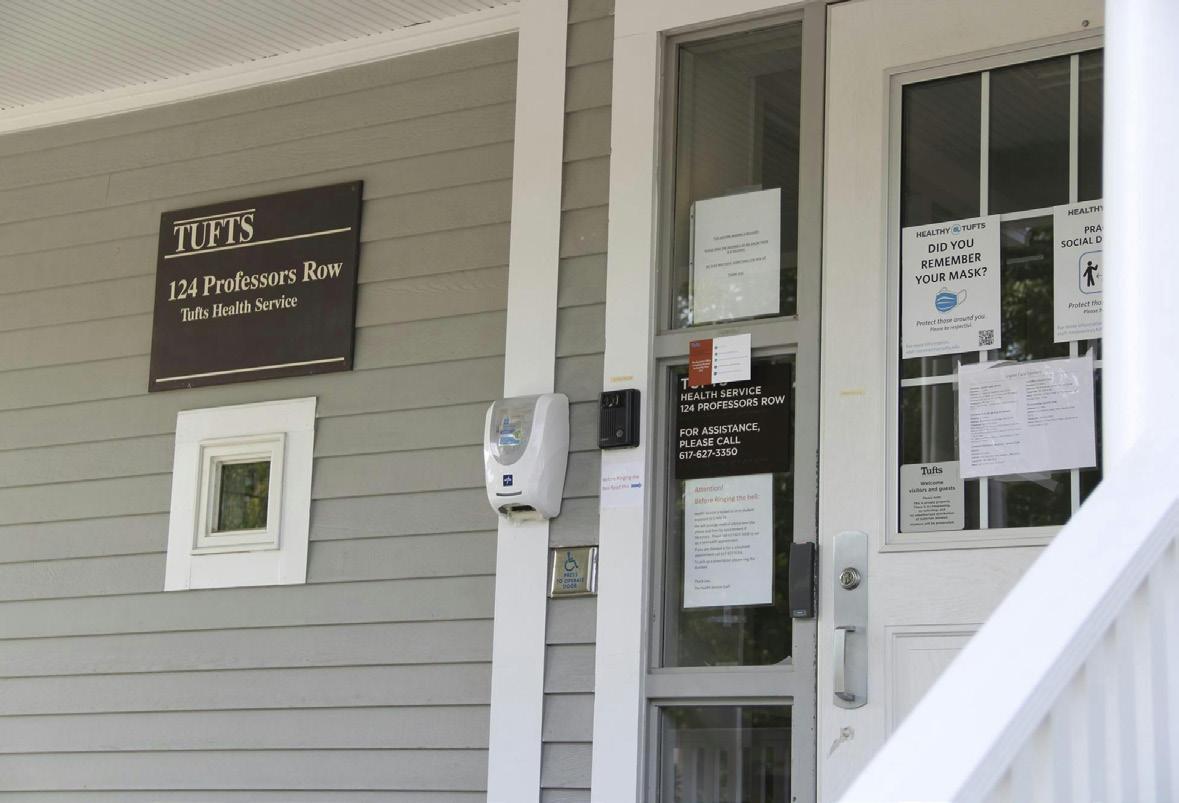
“The [Instagram] post we made [about Health Service offering medication abortion] is one of, if not our most successful post of all time. We had a hugely positive response to that post,” Gerber, who uses he and they pronouns, said.
Abortion services are available at no additional cost to all students who have paid Tufts’ mandatory Health and Wellness fee, which is $1,162 for the 2024-25 academic year. Gerber highlighted the importance of this accessibility.
“I think that’s why it is very exciting. Not only that they’re

offering this care, but that’s covered in the [Health and Wellness Fee], which is such a key point of accessibility, particularly for undergraduate students. You don’t even have to think about what your insurance is going to do with this information,” they said.
Tufts offers comprehensive support for students deciding whether a medication abortion is right for them and for those who have taken the medications. Alexandra Donovan, director of the Center for Awareness, Resources and Education, discussed the resources available to students.
“We are working in conjunction with health services and, more specifically, there are three sex health consultants that consult with CARE and go back and forth between [CARE and Health Services]. They are medical practitioners within health services, but they are on our website and are considered part of the CARE team,” she said.
In addition to emotional support, CARE offers mental health resources and confidential spaces for students to process the decision of getting an abortion.
“While I’m thrilled we have these medical options, there’s still a huge emotional component that comes with it, and we’re here for that,” Donovan said.
Students can schedule meetings with Donovan or other CARE team members through their website. For students seeking to get help anonymously, CARE offers virtual meetings with the option to use a pseudonym or communicate via chat with your camera off.
Beyond emotional and medical care, Caggiano stressed that students undergoing abortions also have access to academic and residential support from the university.
“We have Student Support Services, so that is part of the Dean of Students Office, but they really focus on supporting students through a variety of situations, medical situations being one of them. A student can access those services without needing to even share why,” Caggiano said.
Residential Life also provides assistance for on-campus students undergoing the medication abortion process.
“If we needed to move a student into a health space for a few days while the process is ongoing, we can do that. We don’t have to share the reason. It would just be ‘having a medical procedure, needs a private room with a bathroom,’” Caggiano explained.
By offering medication abortions on campus, Tufts Health Service also seeks to alleviate pressure on local abortion providers experiencing increased demand from out-of-state patients in the wake of the Supreme Court’s Dobbs v. Jackson Women’s Health Organization decision.
“We have students who come from all over this country and also international students. Access may look very different somewhere else, and we felt like by offering [medication abortion] here, we may be offloading some centers that provide abortion, like Planned Parenthoods and other places who might need to be seeing more folks traveling from out of state,” Caggiano said.
Donovan highlighted the commitment to making sure students can safely access abortion care in the aftermath of the Supreme Court’s decision to overturn Roe v. Wade.
“With the Supreme Court decision, it was just very clear that this was something that was very, very important to those of us in [Massachusetts]. … Making sure that [abortion is] safe, that it is something that all the staff that are providing it have been trained in … was a mission for all of us in health and wellness,” she said.
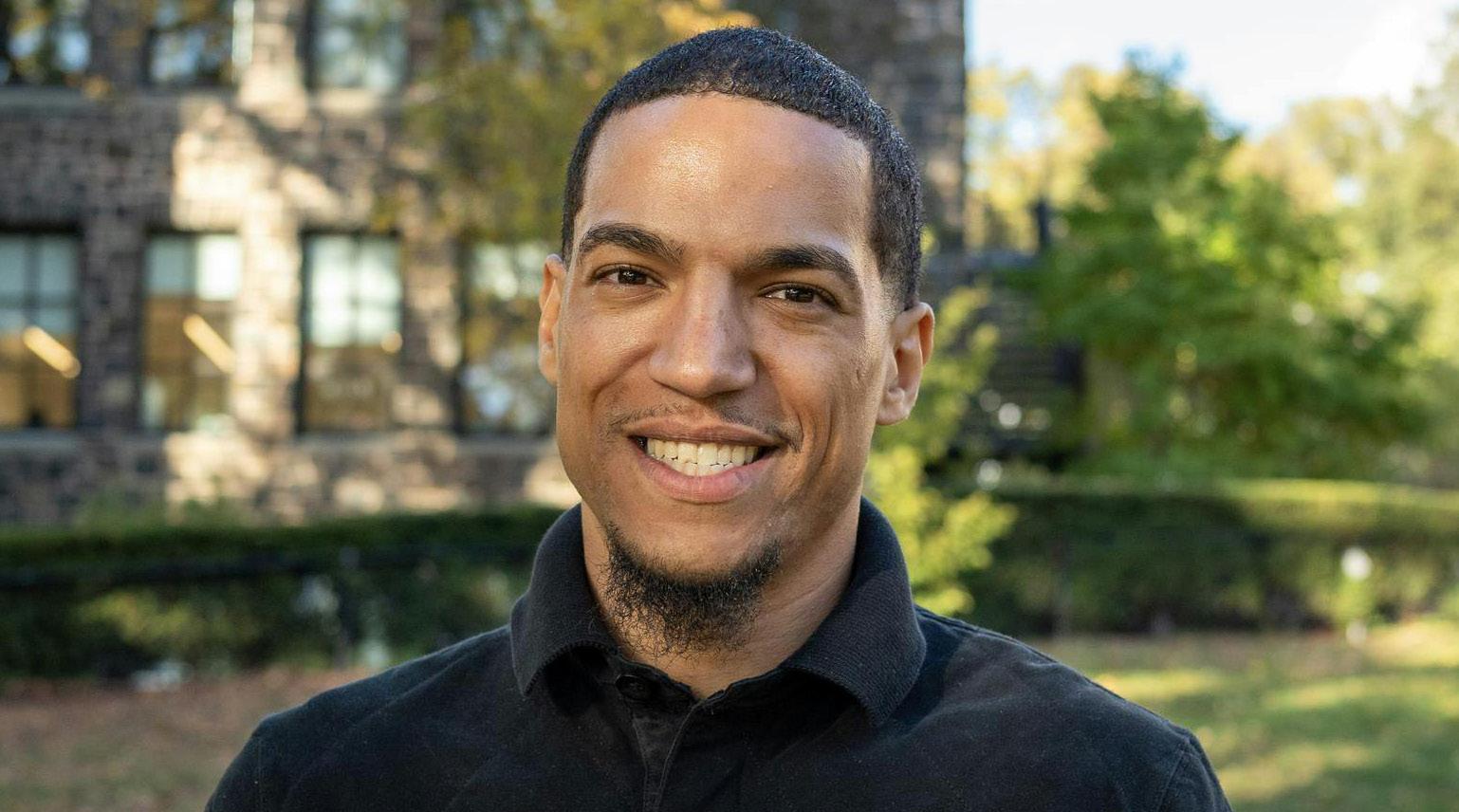
TUPIT graduate and the first known formerly incarcerated person to be hired by Tufts University
Tufts, as an academic institution, prides itself on promoting the values of diversity, equity, inclusion and justice. This past summer, the university took a huge step closer to embodying these values when the Tufts University Prison Initiative of the Tisch College of Civic Life hired its new Education and Reentry Director, David Delvalle. Delvalle is the first person hired by Tufts known to have been formerly incarcerated.
TUPIT is an on-campus organization that involves professors, students and staff in providing educational resources to currently and formerly incarcerated individuals. Hilary Binda, the executive director of TUPIT, provided a description of the organization in a statement to the Daily.
“In partnership with the Massachusetts Department of Correction, TUPIT provides college courses accredited by Tufts University and Bunker Hill Community College toward an associate degree in the liberal arts from [Bunker Hill Community College],” Binda wrote, “and a bachelor’s degree in Civic Studies from Tufts University’s School of Arts and Sciences, the very same degree earned by traditional Tufts students on the main campus.”
TUPIT also runs a program called MyTERN, in which each year, 15 formerly incarcerated students, both from the TUPIT program and outside of it, are selected and given access to “high quality education at no cost with reentry support in technology, personal finance, and restorative justice,” Binda wrote.
In 2016, Binda, along with the Massachusetts Department of Correction, founded the TUPIT organization with financial assistance of the Tisch College of Civic Life. David Delvalle was a student in one of the first classes in prison
that Binda taught. The creation of TUPIT’s degree program surrounded Delvalle’s cohort of students, as they are the first cohort to gain a pathway to a bachelor’s degree at Tufts.
Through hard work and dedication, Delvalle was able to make his way from incarceration to being both accepted as an undergraduate student and hired as a Tufts employee. Delvalle’s path to success did not come without hardship.
“My upbringing was a little rough, to say the least. I had a lot of adverse childhood experiences,”
Delvalle said. “I grew up in low-income housing my whole life. My mother was sick with cancer, my father was fighting a 15-year prison sentence for most of my life in the federal prison system and I had a daughter at 18 years old [which led me to] dropout of high school my senior year to get a job.”
Delvalle was able to get his GED but in 2016 was sentenced to 9 ½ to 10 ½ years in prison. He discovered TUPIT about a third of the way into his sentence.
“I was three years into my sentence, a little lost, just playing basketball and trying to pass the time, and I saw a flyer go up for a college in prison program,” Delvalle said. “I was nervous at first and super unsure of whether I was even able to go to college, but I figured I would take a chance on myself.”
Individuals are rarely able to pinpoint the moment the trajectory of their life changed. Had Delvalle not come across that flyer, this article may have never been written.
“My life changed the day I met Dr. Hilary Binda. She’s my educational fairy godmother,” Delvalle said. “She helped inspire me and give me the tools needed to become a change-maker in this world, and just instilled this confidence in me that has never wavered.”
Binda responded to Delvalle’s kind words in her statement to the Daily.
“I think ‘fairy godmother’ is an interesting term because it reflects the fact that my relationship to David and to many behind the wall is different from that of professor; there is so much more happening in that space than in a traditional classroom … it has required a deep partnership, a recognition of differences coupled with a shared commitment to hopes and goals.”
Upon Delvalle’s release in 2022, he was admitted to the MyTERN program. Louise Bond, a senior at Tufts majoring in sociology and Civic Studies, is a TUPIT student coordinator and worked with Delvalle in the program.
“I met him through [the MyTERN program] and we immediately became friends,” Bond said. “Anyone will tell you he’s a wonderful person who is also an incredible community leader and has dedicated himself fully to educational justice and believes in the transformational power of education.”
Having successfully completed the MyTERN program, Delvalle was accepted to Tufts as an undergraduate student and is currently taking classes towards a degree in Civic Studies; he is set to graduate in May 2026. He says his major “aligns beautifully” with his TUPIT position and the other work he does in the community.
As a student, Delvalle was welcomed by the Tufts community with open arms. “People, from staff to students, have embraced [me] because it’s weird, I’m younger than a lot of staff, but I’m older than a lot of students, so I’m in this middle ground where I get to kick it with everybody,” he said.
Upon his hiring, Delvalle was embraced by the people around him.
“When I found out that he had been officially hired, it was a huge celebratory moment for him, for me, for the program, for the community [and]
for everyone who loves him,” Bond said.
Delvalle briefly described his role as education and reentry director of TUPIT. “I make sure that all students are getting the reentry services that they need with community partners,” he said.
Binda wrote to the Daily that she watched Delvalle transform from someone who listened quietly to now being a leader himself. “It’s especially moving to see the respect those early peers afford him,” Binda wrote.
Delvalle spoke of the pressure that comes along with setting new precedents at Tufts.
“Sometimes I feel like I’m representing my entire community and people from my walk of life, because if I succeed, then Tufts is more likely to open the door for somebody else, and if I fail, then they’re more likely to want to shut the door on the next individual who has a criminal record,” Delvalle said.
While Delvalle has occasional doubts and feelings of “imposter syndrome,” he reminds himself that he is qualified for his position and deserves his place at Tufts. Those who work with him agree, including Bond, who expressed her belief that Delvalle was a great fit for his position in TUPIT.
“Formerly incarcerated people who had their lives changed by their involvement in college [and] higher education in prison should be the ones leading these programs,” Bond said.
Delvalle’s hiring has the potential to spark new dialogue about academic institutions employing formerly incarcerated people — and not just in programs such as TUPIT.
“Having a criminal record shouldn’t be looked at as … something that would give them less value, when ultimately, in some spaces, it adds value,” Delvalle said.
“A lot of people who are incarcerated have high levels of socio-emo-
tional learning, have high levels of empathy, and are great individuals to be around … because when you’re incarcerated, all you have to represent yourself is your character and your integrity and your honor.” Bond agreed with this sentiment and commented on hiring formerly incarcerated people. “It’s not just about eliminating the discrimination and … evening the playing field, but also recognizing that lived experience with incarceration can make you uniquely positioned to create change,” she said.
While DEIJ is at the forefront of academic institutions’ discourse, their actions don’t always reflect this focus.
“A lot of institutions talk about DEIJ and embracing people from other walks of life, but Tufts is actually doing it, so that puts them in a whole other category of inclusivity,” Delvalle said.
Originally, it was uncertain whether or not Delvalle would be hired to Tufts, despite his overwhelming qualifications, which begs the question: Will Tufts hire formerly incarcerated people in the future?
“I really hope that they see David not just as a one-time special exception, but as a first of many formerly incarcerated people to join Tufts and enrich the experience for everyone,” Bond said.
Binda wrote that TUPIT plans to hire more people that were formerly incarcerated as long as it receives enough money to do so.
“I’m grateful and I’m honored that Tufts is willing to take a chance on me. I will never disrespect that blessing,” Delvalle said. “I will do the best I can to represent everybody from my walk of life and understand that this is an opportunity to prove that anybody can come here and anybody can belong in this place. … And I’m hoping that I will not be the last.”
Dylan Fee
Iwant to start off this week with an apology. I told you all I was going to be reviewing the Soylent Green from The Sink this week. However, I went there the day before this column was due (procrastinating is my lifestyle) and they were out of soy milk, so I made a last minute change to review this week’s Sinknature drink — Cloud Nine.
The name, Cloud Nine, holds familiarity from both the common idiom and the Disney Channel original movie. Along with this cinematic masterpiece, there are a plethora of songs that bear the title of this signature drink. It seems like everyone is trying to chase that Cloud Nine feeling in one way or another.
When researching the idiom, I found that it comes from classifying the 10 types of clouds, in which, the ninth is a cumulonimbus which “rises to 10 [kilometers], the highest a cloud can be.” Is that why we use this phrase so much? Are we always thinking about being the best, reaching the highest possible limit, while watching our lives pass us by and missing the moments that give us true happiness rather than the faux ‘bliss’ we feel once we are alone at the top?
Insert funny Cloud Nine pun here to lighten the mood. Anyway, getting into the review, I waited a respectable 11 minutes and 36 seconds for my drink today. I want to take a moment to shout out the Tuesday afternoon Sink baristas because they are always killing it with wait times and getting my two drinks right every time.
As Cloud Nine has a base of Chamomile Tea, it only comes hot, so I got one with whole milk and the other with my mortal enemy — oat milk. While it’s understandable that they were out of soy milk, being out of almond as
whelmed by the lack of flavor. However, after letting it steep for a few minutes, you might as well hand me a snowboard and call me Dove Cameron, because I felt like I could do a Cloud Nine (to the parents reading this, that was in reference to the Disney movie, definitely worth the watch).
The delicate floral of the Chamomile and the lavender’s slight citrus taste, mixed with the familiar sweetness of the honey and the softness of the whole milk made for the perfect combination of spring and winter that I never knew I needed. This drink is an anomaly because it is both soft and strong with a blend of sweet and bitter flavors. As an indecisive person, this drink was a magnificent middle ground. Plus, its scent would make for a perfect candle.
Even the oat milk couldn’t screw it up. While I got some of that Quaker flavor, the stars of this drink were still able to shine through.
The Cloud Nine is close to perfection, good for anyone looking for a bittersweet drink and it works for any time of year. Tea is great for the girlies with tummy troubles and if all that’s left at the Sink is oat milk, this drink is still not half bad.
Always Brewing the Best Reviews, Dylan Fee
Dylan Fee is a junior majoring in mathematics and Latin. She can be reached at dylan.fee@tufts.edu.
Molly Sullivan Essentially Tufts
Katrina Barry stood at the Kindlevan Café register, ringing up a student she knew by name. She joked with him a few times, her strong
her bright personality and intentionality to connect with students.
“I enjoy working with you guys. … I learn a lot from you guys from all over the world. I learn so much,” Barry said.
Barry, who goes by Kat, was born in 1961, the second of four girls, and was raised by her parents in Boston. She graduated from Northeastern University with a Bachelor of Science in Recreation and Leisure Studies and a minor in Therapeutic Recreation.
After college, she worked in a mental health hospital in Brookline and then transitioned to become the first female chair car driver for Fallon Ambulance Services. When she married her husband in 1988, they moved to a house in Medford, just a ten minute walk from the Tufts campus. They’ve lived there ever since, raising two children, one who lives with them now and the other just a block away with his girlfriend. Barry’s career took a pause when she had two children within two years.
“I just stayed home, and I was a full time mom until both of my kids were in school, and then I did mom jobs. I was a school crossing guard. I was president of the [Parent Association], a Girl Scout leader. … Everything that I did revolved around kids,” Barry said.
Barry then spent 15 years working at Saint Raphael Parish School in Medford, cooking for the elementary-aged students there.
“We cooked from scratch. I used all my own recipes when we cooked there. I baked for them once a week. I loved that job,” Barry said. Her favorite meal to make was the mac and cheese. “That was the favorite one the kids liked to eat.”
Barry has worked at Tufts for 14 years now. When she’s not working, both on weekends and over the summer, she camps in her trailer in Ossipee, N.H.
“I have been in the same campground for 58 years, if you can even believe that one. My sister has the trailer right next to me on the site that I grew up on, and then my best cousin is next door. So it’s a big family. I just get to spend all summer with my family. I absolutely love it,” Barry said.
This year, for Indigenous Peoples’ Day weekend, Barry traveled to New Hampshire
for the last weekend of the 2024 camping season. In the off-season, Barry cherishes family time. She spends every Saturday with her cousin, Karin, and ends her weekend with a Sunday reset day and a big family dinner that she cooks.
“It can be anything,” Barry said in reference to her Saturday activities with her cousin, who lives about 45 minutes from Tufts. Past activities have included a trail walk with their dogs, Chara and Raven, and driving two hours to share a meal at their favorite restaurant in New Hampshire.
“Last year, we did a whole run of ‘Let’s find the best apple cider donuts we can find.’… It’s just cousin time. It’s just whatever we can do to hang with each other.”
At the end of our conversation, Barry told me about her daughter who was diagnosed with autism and Asperger’s syndrome before the age of four. Despite her daughter’s difficulty connecting socially with people, she made a deep connection with one of the cafeteria workers at her college, Roger Williams University, even visiting the worker in the hospital when she broke her knee.
“[The worker] really made an impression on my kid. … That’s why I’m working, because I work here for the students. And I would like to be that kind of person. … It might be the first time anybody’s away from their parents for an extended period, and it’s hard.”
Because she holds deep roots in the Tufts and Medford communities, Barry attempts to help students with anything they might need locally. Additionally, though, Barry strives to be a familiar face and mentor to students.
“If [students] just need a hug, I’m happy to give hugs out. I love giving hugs out. And you know, sometimes they just need a shoulder to cry on. Sometimes they need a kick in the fanny,” Barry said. “That’s why I’m here. I’m here for the students. I mothered myself out of a job. My kids are 33 and 32. They don’t need me. I come here, where you guys need me.”
be integrated during the bachelor’s degree, thereby shortening time and financial commitment to the graduate degree.
The deadline to apply is December 15 for seniors (GSAS and SOE) and March 15 for juniors (GSAS only) gradadmissions@tufts.edu | 617-627-3395 Benefits of a Fifth-Year Master’s
• Earn your bachelor’s degree and master’s degree together, usually within five years
• GRE scores not required
• Application fee and enrollment deposit are waived
• Only two letters of recommendation are required
• Generous scholarships are available*


Molly Sullivan is a sophomore who has yet to declare a major. She can be reached at molly.sullivan@tufts.edu.
The Fifth-Year Master’s Degrees are offered through the following programs:
Graduate School of Arts and Sciences
Art Education, BFA/MAT
Biology, BS/MS
Chemistry, BS/MS
Child Study and Human Development, BA/MA Classics, BA/MA
Data Analytics, BA/MS or BS/MS Economics, BS/MS
Education: Middle and High School, BA/MAT or BS/MAT
Environmental Policy and Planning, BA/MS or BS/MS Mathematics, BS/MS Museum Education, BA/MA Music, BA/MA Philosophy, BA/MA
Sustainability, MA
Urban and Environmental Policy and Planning, BS/MA or BA/MA
School of Engineering
Bioengineering, MS
Biomedical Engineering, BS/MS
Biophotonics, MS
Chemical Engineering, BS/MS
Civil and Environmental Engineering, BS/MS
Computer Engineering, BS/MS
Computer Science, BA/MS or BS/MS
Cybersecurity and Public Policy, MS
Data Science, BS/MS
Dual Degree Program: Tufts Gordon Institute degree + other Engineering degree, MS
Electrical Engineering, BS/MS
Engineering Management, MS
Human Factors Engineering, BS/MS
Human-Robot Interaction, MS
Innovation and Management, MS
Materials Science and Engineering, MS
Mechanical Engineering, BS/MS
Offshore Wind Energy Engineering, MS
Software Systems Development, MS
Technology Management and Leadership, MS
How can art drive change in the future? How will the world we live in shape the art of the future? These are questions that are asked in “Across the Universe.”
Cambridge-based artist Tomashi Jackson’s mid-career survey, “Tomashi Jackson: Across the Universe,” is currently on display at the Aidekman Arts Center through Dec. 8. This exhibition, curated by Miranda Lash, is accompanied by a catalog featuring essays by Lash, Robin D.G. Kelley, Liz Munsell, Megan O’Grady and Zoé Whitley, as well as an interview by Larry Ossei-Mensah with Jackson and Nikita Gale.
This exhibition marks the first comprehensive showcase of Jackson’s work over the past nine years. The survey reflects her commitment to using art to shed light on patterns of oppression, activism, resistance and societal advances. Through her work, Jackson fuses historical research with innovative strategies of color and collage to create evocative prints, paintings, videos, textiles and sculptures that explore systemic inequities in American democracy.
As visitors explore the gallery, they tour Jackson’s development as an artist and her research into essential issues such as educational access, transportation, housing, voting rights and labor rights. The exhibition boasts diverse multi-
media pieces, 3D installations and video works. Jackson’s mastery is evident in her distinctive use of color, material and music.
Since 2014, Jackson has integrated Josef Albers’ theories of color with her research into the histories of skin color laws and policies in America. She noticed an overlap between Alber’s views on color in his 1963 book “Interaction of Color” and Thurgood Marshall’s ideas on the relativity of color in his arguments for the desegregation of schools.
One of the most striking pieces in the gallery, “Vibrating Boundaries,” exemplifies Jackson’s use of this color theory. The “vibrating boundaries” refer to the effect of highly saturated contrasting colors interacting at their edges. In this video composition, Jackson collaborated with Houston artists Patrick Renner and Emily Peacock to reenact the harrowing experiences of Tatyana Rhodes, Dajerria Becton and Sandra Blanc with police brutality. In the video composition, the artists held five poses, each for one minute while conjoined by a tubular knitted color study. The knitted color study is one of Jackon’s hand-knitted fiber works, which uses varied colors of yarn to explore skin color juxtapositions. The video composition fuses Alber’s ideas of the relativity of color and vibrating boundaries to powerfully communicate the struggles endured by Black Americans in relation to police brutality.

Jackson further uses collage techniques, juxtaposing historical images with earthen materials, to visually articulate experiences of injustice. In one collection, she integrates materials from Colorado’s landscape into her paintings. One such work was “Among Harvest,” which addresses the challenges faced by Latinx immigrant farmers in the Hamptons, often subjected to police harassment and deportation threats. By incorporating soil from the Parrish Art Museum grounds and local potato bags, Jackson pays homage to the farmworkers who worked the land.
Tucked in the top floor of Curtis Hall are the studios of WMFO, Tufts’ student-run freeform radio station. The station, running 24-hour broadcasting since 1974, features nearly 300 DJs from the university and surrounding communities, broadcasting anything from pop music playlists to live rock performances to talk-show style conversation segments.
WMFO has embraced a style of freeform radio for the past 50 years, giving student DJs control of what they play on the air. “To me, ‘keeping it freeform’ means playing whatever you want, whatever feels right, and that can change week to week, that can change minute to minute,” said senior Alicia Coble, WMFO’s programming director.
Given its flexibility and freedom of expression, freeform radio has often been adopted by and associated with college stations like WMFO. One of the station’s general managers, Gonzalo Escajadillo, a senior, explained that radio can be a special creative outlet for students discovering who they are in their college years. “It really gives people an opportunity to think about what

they want to put out in the world. … and I think it offers a good, really unique space for self reflection,” Escajadillo said.
“It’s fun to listen to peers do something you’ve only heard Howard Stern in New York, and [Don] Imus, … and the major radio personalities that we grew up with. It was cool that, like, some guy from Miller was doing this show,” said former student DJ Todd Markley (LA’96), recalling his days at the station fondly — despite his 2–6 a.m. Saturday slot.
Even with its large body of DJs and wide broadcasting range across the surrounding areas, WMFO is still considered a relatively hidden gem in the Tufts community. “I didn’t
even really know about this music scene before coming here. Like, I was not planning to be involved in music or radio. I didn’t know any of this existed, and now it’s like, the biggest part of my life at Tufts,” junior Kymberly Kuras said.
Kuras is now the president of WMFO’s Studio B, the station’s live music studio, and host of “Post Adolescence Glow,” one of two shows that feature live musical performances. Unlike most of WMFO’s shows — which broadcast from Studio A, and feature recorded music or live talk segments — “PAG,” as Kuras calls it, hosts artists for live shows, making the most of the freeform style with often unpredictable perfor-
The final section of the gallery focuses on Jackson’s connection with music. It highlights her alterego, Tommy Tonight, an amorous male R&B singer inspired by 1990s Black boy bands. The exhibition features a rare live performance of Jackson as Tommy Tonight lip-syncing the entirety of the 1978 Doobie Brothers album “Minute by Minute,” intertwined with conversations with her mother regarding domestic labor among her family in Texas and California. This piece highlights how Jackson combines her art with her musical passions to illustrate multigenerational stories of struggle and triumph among communities of color in America.
mances and conversations with the musicians.
In addition to student DJ programming, WMFO also features shows by members of the surrounding communities of Medford and Somerville, some of which have been running for decades. “Something About the Women,” is the longest-running women’s music radio show in the country, having been on the air since 1973, and “On the Town with Mikey Dee” has featured weekly live performances since 1989.
Most of WMFO’s DJs play their sets via streaming service, but they also have the option to pull from the station’s seemingly endless collection of physical media. Tragically, in 1977, Curtis Hall suffered a major fire which destroyed much of the WMFO studio and its original collection. But, following the fire, WMFO received an outpouring of media donations, many of which are still on the studio’s shelves today.
Now, despite having been almost entirely digital since 2009, WMFO has rebuilt and maintained a massive collection of classic vinyls, cassettes and CDs available for DJs. “I could literally get on my phone right now and listen to any song that’s ever been created,
Jackson’s exhibition extends into Artist Selects — a recurring program hosted by Tufts University Art Galleries that invites exhibiting artists to explore and curate a selection of works from the Tufts University Permanent Collection to complement their exhibitions. J ackson’s work powerfully illustrates the role of art as activism and gives voice to marginalized communities and sparks conversation about critical inequalities in our democracy. Ultimately, “Across the Universe” embodies the goal of Tufts University Art Galleries: to empower artists and contribute to the creation of a more just world through art.
but that is far less impressive to me than the vinyl collection at WMFO. … Rooms and rooms and hallways of vinyl as far as the eye could see,” Markley said.
Markley considered this access to physical media, as well as the freeform operations of the station, to be an outlet essential to breaking out of the monotony of modern media. “I think it’s healthy for us to be exposed to voices we wouldn’t choose to tune into, music we wouldn’t choose to pull up on our phone … and opinions we wouldn’t have heard otherwise. I think it helped us, in some ways, exit the media landscape writ large,” Markley said. Whether it is electronic dance music or a philosophical discussion or anything in between, WMFO seems to have something for everyone — something you may have heard before, and most likely something you have not. Keeping the station and its culture alive can continue to foster creative expression and exploration for the Tufts community for many more years to come.
Tune in to WMFO on 91.5 MHz on the FM band, or online at wmfo.org. And, of course, keep it freeform.
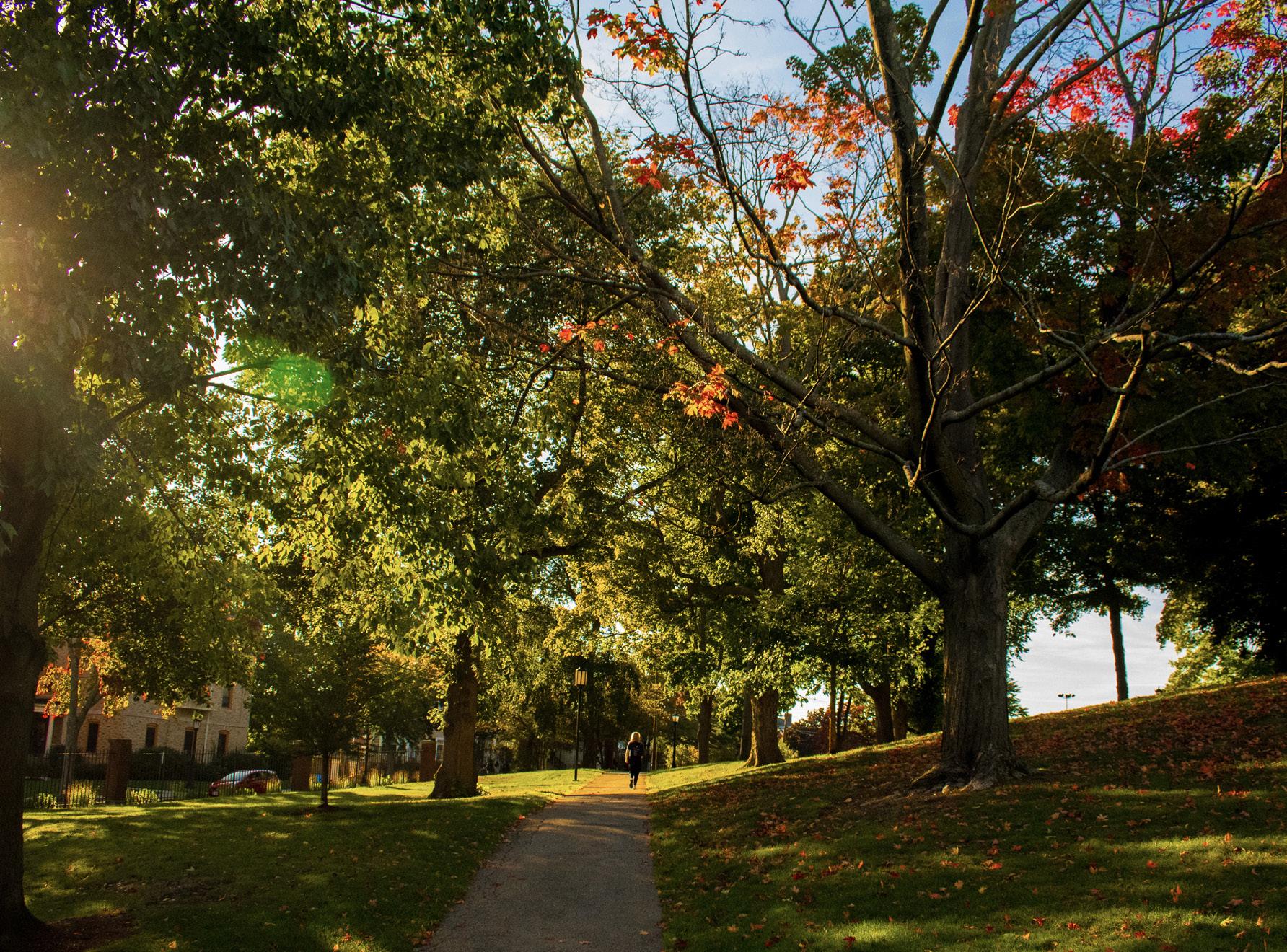


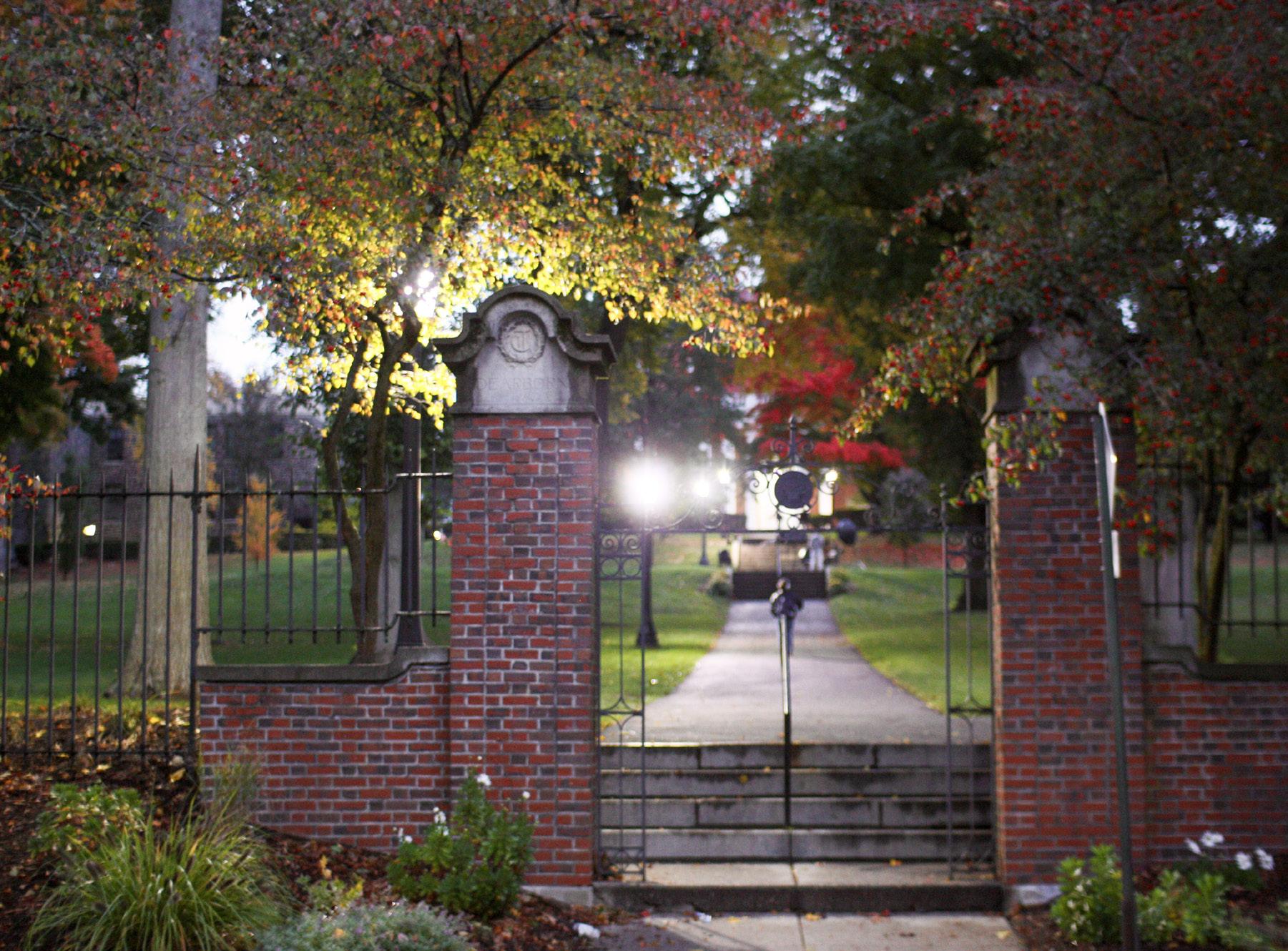
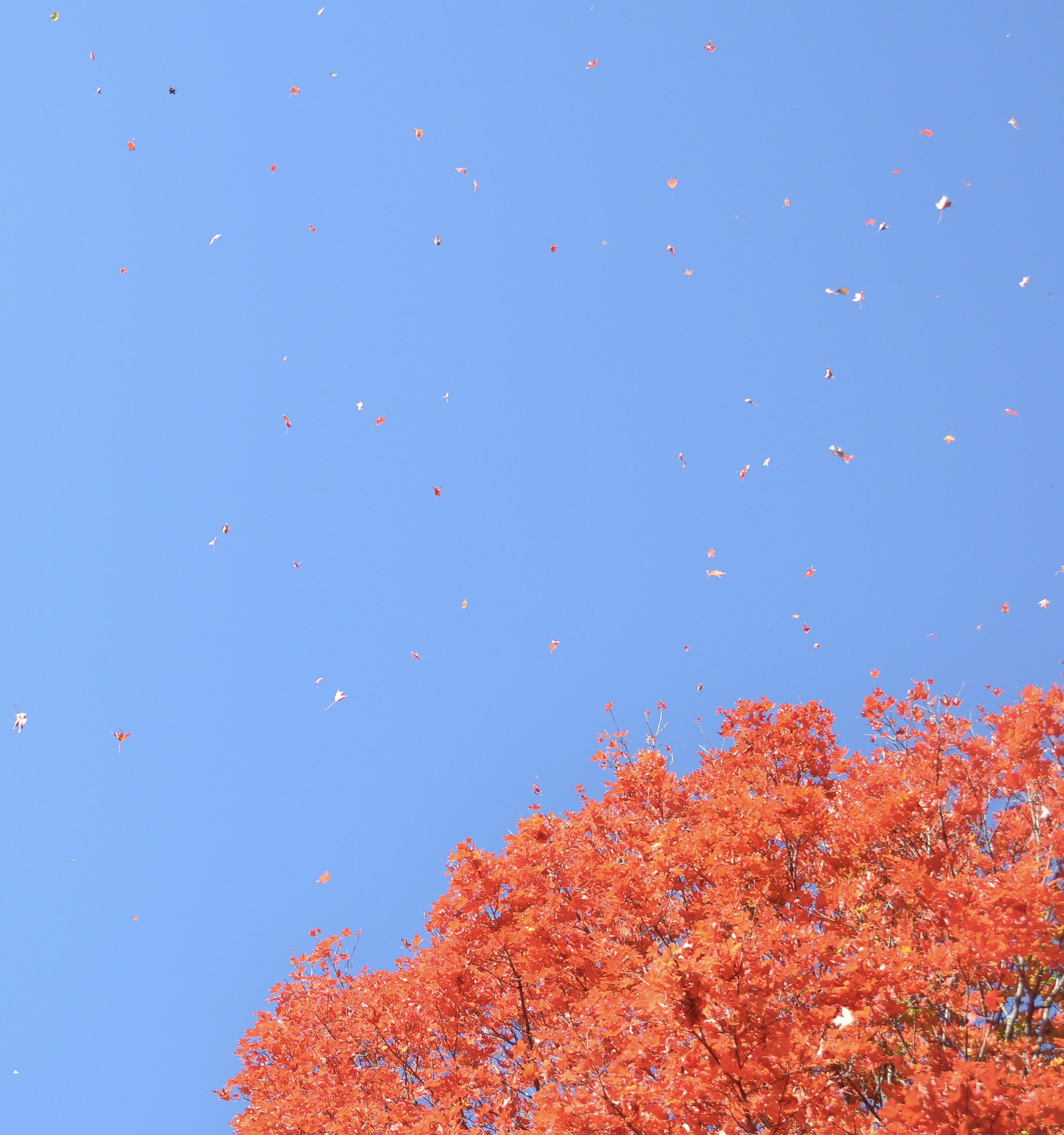




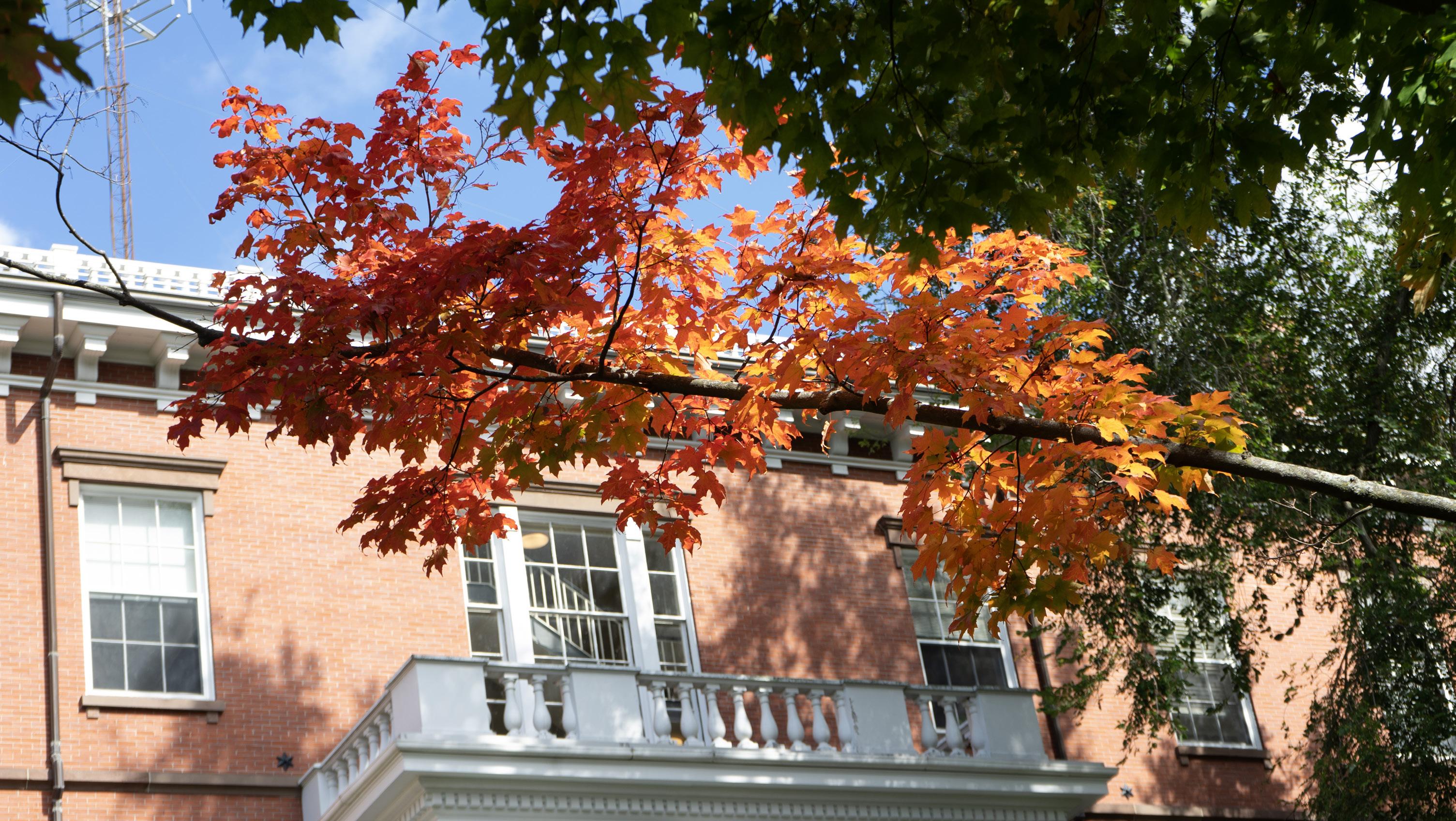




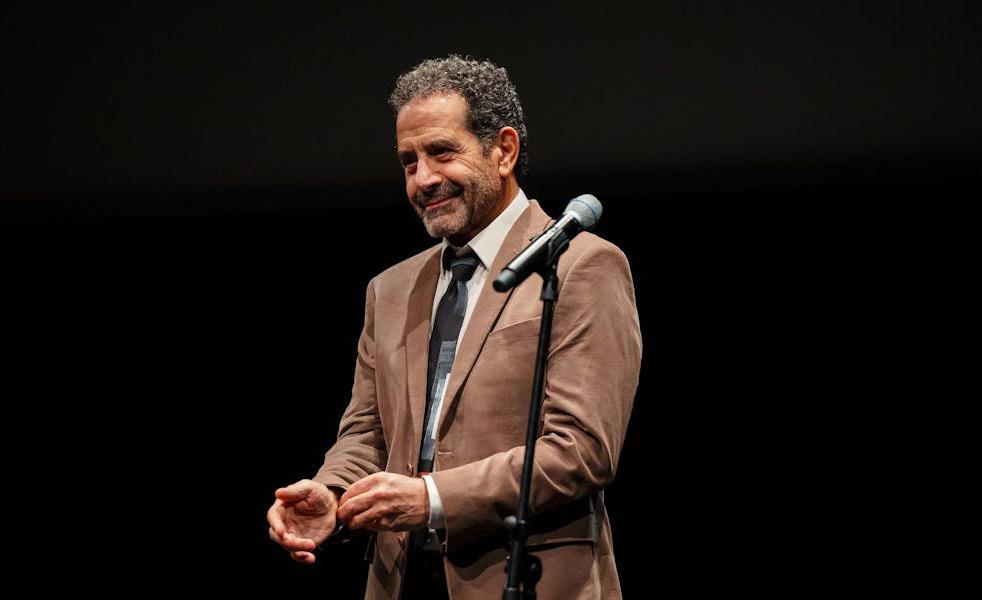
Anyone who’s done theater has probably had some version of the actor’s nightmare: You find yourself alone onstage, you don’t know what the show is and you don’t know any of your lines. While this may seem like just a fantasy scenario, it’s actually the premise for the “Nassim,” a remarkable play from the Huntington Theater Company, now playing at the Calderwood Pavilion through Oct. 27.
Written by Iranian playwright Nassim Soleimanpour, “Nassim” is a one-of-a-kind theatrical experience. A one-person show, the play is performed by a different guest actor every night. The guest performer arrives at the theater with no preparation and no prior knowledge of the show, and it’s up to them to tackle the unseen script, which is waiting for them onstage in a sealed box. The guest performer is aided by Soleimanpour, who flips through the script backstage — the pages are projected onto a screen above the stage so the audience, and the performer, can follow along. Both deeply personal and universal, the play explores Soleimanpour’s childhood in Iran, his relationship with the performer and the audience, and the unifying power of language in an incredibly powerful production.
At the Friday performance, the guest performer was legendary actor Tony Shalhoub, who has won four Emmys for his performances on “Monk” and “The Marvelous Mrs. Maisel,” and a Tony for his role in “The Band’s Visit.” Performing “Nassim” is no easy feat for anyone, but Shalhoub is a natural onstage — he had the audience’s full attention from the moment he delivered his first line. His witty humor and ad-libbed
retorts to Soleimanpour’s script were the perfect match for the playwright’s cleverly constructed script, allowing actor and playwright to have a conversation of sorts, although Soleimanpour barely spoke a single word in English.
Soleimanpour grew up speaking Farsi and knew very little English when he debuted the play in London in 2017. Since then, Soleimanpour has taken “Nassim” around the world, including 20 countries in just 200 days in 2018. Early on in the show, Shalhoub explains to the audience that Soleimanpour wrote the play with two key goals: to learn new languages and to meet new people. Over the next two hours, Soleimanpour’s script does just that, presenting Shalhoub with a series of prompts that help them get to know each other, asking him to name his favorite restaurant in Boston (not a local, Shalhoub chose the Legal Sea Foods in Logan Airport), his favorite English swear word (smugly, he selected “asswipe”) and a meaningful photo from his cell phone. At its core, the play is about connection — if all goes according to plan, Soleimanpour and the performer will be friends by the end of the night. More importantly, you’ll be friends with them too.
While the show’s design elements are minimalistic by nature, its production design is unique, focusing on multimedia storytelling. From the start, the large screen that projects the script onto the stage is a vital part of the narrative, giving both Shalhoub and the audience a window into the playwright’s world and instructions on how to proceed with the story. While the screen begins as little more than a set of virtual cue cards paired with the expressive hands of Soleimanpour, it
quickly becomes a canvas for the story to blossom, inviting the audience into the world of “Nassim.”
One of the play’s key themes is the desire for connection across cultural and linguistic barriers. Throughout “Nassim,” our playwright and Shalhoub teach the audience words and phrases in Farsi, the official language of Iran. Together, the audience learns phrases like “Salam mumun,” which means “Hello mother,” and “Delam tang shodeh,” which means “I miss you,” or literally, “my heart tightens.” Soleimanpour sees language as a powerful unifying force, one that strengthens the bond between himself and the performer as they learn how to speak to each other. He also uses language to connect the story back to memories of his childhood and his mother. The language of his childhood resounds through the theater, bringing everyone together with simple yet powerful phrases. The weight of these words cannot be overstated — they burrow deep into your chest, settling into your heart with no intention of leaving.
The connection between the audience, playwright and performer is amplified through audience participation. Shalhoub was often instructed to turn to the audience for suggestions, giving the crowd a way to leave their mark on the show. At one point, three audience members are picked to tell a story with Shalhoub in Farsi, mirroring a childhood game Soleimanpour played with his mother in which the participant must eat a cherry tomato for each word they pronounce incorrectly. Far from an act of humiliation, the exercise is a powerful lesson in the ways language unites and divides us.
While the show will certainly be a unique experience with
of the pond, so best of luck to all you poor unfortunate souls :)
Anyways, this week’s book is about as different as you can get from last week’s book, which was all about violence and rage and resistance.
“Welcome to the HyunamDong Bookshop” (2023) envelopes you in a story about everyday life, with stories flowing seamlessly from character to character.
One character is struggling through college burnout. One character is coming to terms with her unsuccessful marriage. One kid is navigating societal pressures to find a passion (I’m realizing this is starting to sound like the lyrics for “Castle on the Hill” (2017)). The bookshop owner herself is trudging through past hurt while pursuing her present dreams. Every character embodies relatable, everyday struggles that we all go through.
each performer who takes it on, Soleimanpour’s presence is the one constant that makes the show so special. His comedic instincts and his ability to think on his feet are crucial to the play’s success, as is his capacity to connect with the audience on a deep emotional level. We won’t spoil the ending here, because Soleimanpour’s ability to send the audience into a fit of laughter in one moment and leave them wiping away tears in the next just has to be seen to be believed.
The beauty of “Nassim” is its accessibility, to both theater lovers and newcomers alike. If you’ve never seen theater in Boston before, make this show your first. You won’t regret it. “Nassim” runs through Oct. 27 at the Calderwood Pavilion. You can purchase tickets starting at $29 on Huntington’s website.
Merry Jiao
Read, Write and Be Merry
‘Welcome to the HyunamDong Bookshop’
Disclaimer: This article contains spoilers for “Welcome to the Hyunam-Dong Bookshop” by Hwang Bo-Reum.
You! Yes you, the person reading this article. You look like you need a hug. I’m imagining that movie clip from Migration, and I promise you will feel better after reading this. Apparently it’s midterm month over on the other side
And yet, nothing in this book felt dark or mentally taxing to read. Rather, all the characters’ stories intertwine in the warm, coffee-infused local independent HyunamDong Bookshop, where older aunties offer words of encouragement to stressed students, elderly patrons share mental health struggles with their neighbors and the community wordlessly gathers in a safe haven of words.
My favorite part of this book is how it incorporates inner monologues and self-reflections into the storyline. This, in my opinion, is why the storylines in the book are so relatable. Don’t we all experience life with a constant line of mental commentary, judgments and intrusive thoughts running through our heads? Sometimes we fall into rabbit holes and overthink every single interaction, other times we lay on the floor and try to forget an embarrassing interaction from two years ago (hey, floor time!). I love that instead of commentating on the rights or wrongs of a character’s choices, the author intentionally embraces the flaws, the indecision, the confusion, the uncertainty that we all face.
“Welcome to the HyunamDong Bookshop” is a hug for all of us. It encourages us all to make space for ourselves and, as the characters do by the end of the story, find a small community that will embrace our flaws and support our decisions all the same. Instead of taking everything so seriously by making absolute choices and charging towards the elusive societal concept of ‘success,’ the book gently pushes us to make decisions based on what we enjoy.
Stop overthinking it and just follow your heart. Like I said: hugs for all.
Merry Jiao is a senior majoring in international relations. She can be reached at merry.jiao@tufts.edu.
Arghya:

Difficulty Level: Getting your kid to call you every week.
Crossword and Mini Crossword by Nate Hall


MARCH 21-APRIL 19
You are the star of the show this week. Film an OOTD everyday this week, bonus points if you film it with your parents.


SEPTEMBER 24-OCTOBER 23
Fact check all of that hot goss you hear this week. You might hear that your ex-best-friend glowed-up and got a significant other. That just can’t be true. Can it?

MAY 21-JUNE 21
Teamwork makes the dream work for you this week. You know that group project due next week that you haven’t looked at? It’s time to open the rubric, maybe even make a slide or two.
how to fall in love with living again
APRIL 21-MAY 20
You’re in a bit of a lull this week. You might catch yourself falling asleep in your afternoon lecture. That text from your parents that they are going through your dorm should wake you right up.

JULY 23-AUGUST 23
Transparency is key for you this week. Tell your parents about the sheets you haven’t washed since Orientation Week.

DECEMBER 22-JANUARY 20
You will have the strong urge to flirt with your campus crush this week. Tread lightly, there are parents lurking everywhere.

OCTOBER 24-NOVEMBER 22
Your health halo is slipping this week. Make sure you don’t give your parents the frat flu.

JANUARY 21-FEBRUARY 18
Start a new business venture this week. Resell all your Tufts merch to the parents this weekend at an upcharge.

DECEMBER 22-JANUARY 20
Expand your palette this week. Bring your parents to the Sink to try the Cloud Nine. Read more about it in “The Daily Drip” in the Features section.

JUNE 22-JULY 22
Break out of your shell this week. Don’t be embarrassed when your parents ask your friends for their life stories.

AUGUST 24-SEPTEMBER 23
Consider all viewpoints this week. You know how your mom keeps saying those skinny jeans she snuck into your closet are “making a comeback,” this is the week to give them their first wear.

FEBRUARY 19-MARCH 20
Rein in your spending this week. Let your parents buy all of your meals for you.
save up for a hibachi night and take pictures of the onion fire volcano. send them to your dearest ones take the long route to class up the prez lawn stairs and stop to find the reddest leaf on the ground. pick it up and take it on the rest of your journey. give it to your professor if you like their lectures send your favorite TA an email thanking them for their wisdom and guidance. they are probably overworked and underpaid. recognize and appreciate them loudly exclaim about all the beautiful flowers you see on campus. remark about them to your friends. bundle up in your thickest fleece and sit on prez lawn past 11 p.m. take off your shoes and feel the chilly grass between your toes. be grateful for the existence of socks after you get too cold. appreciate the fact that both of your nostrils are working when you aren’t sick. breathe in deeply and send out a thought for everyone with a stuffy nose. send out another thought for them to stay home from lectures if they will be sniffling and snorting into the row in front of them the whole time take your headphones out on your daily hustle to class uphill. huff and puff and be grateful for the body and devices that carry you. curse the hill. why couldn’t we be the light upon that field instead?
Defne Olgun is a second-year combined-degree student majoring in quantitative economics. She can be reached at Defne.Olgun@tufts.edu
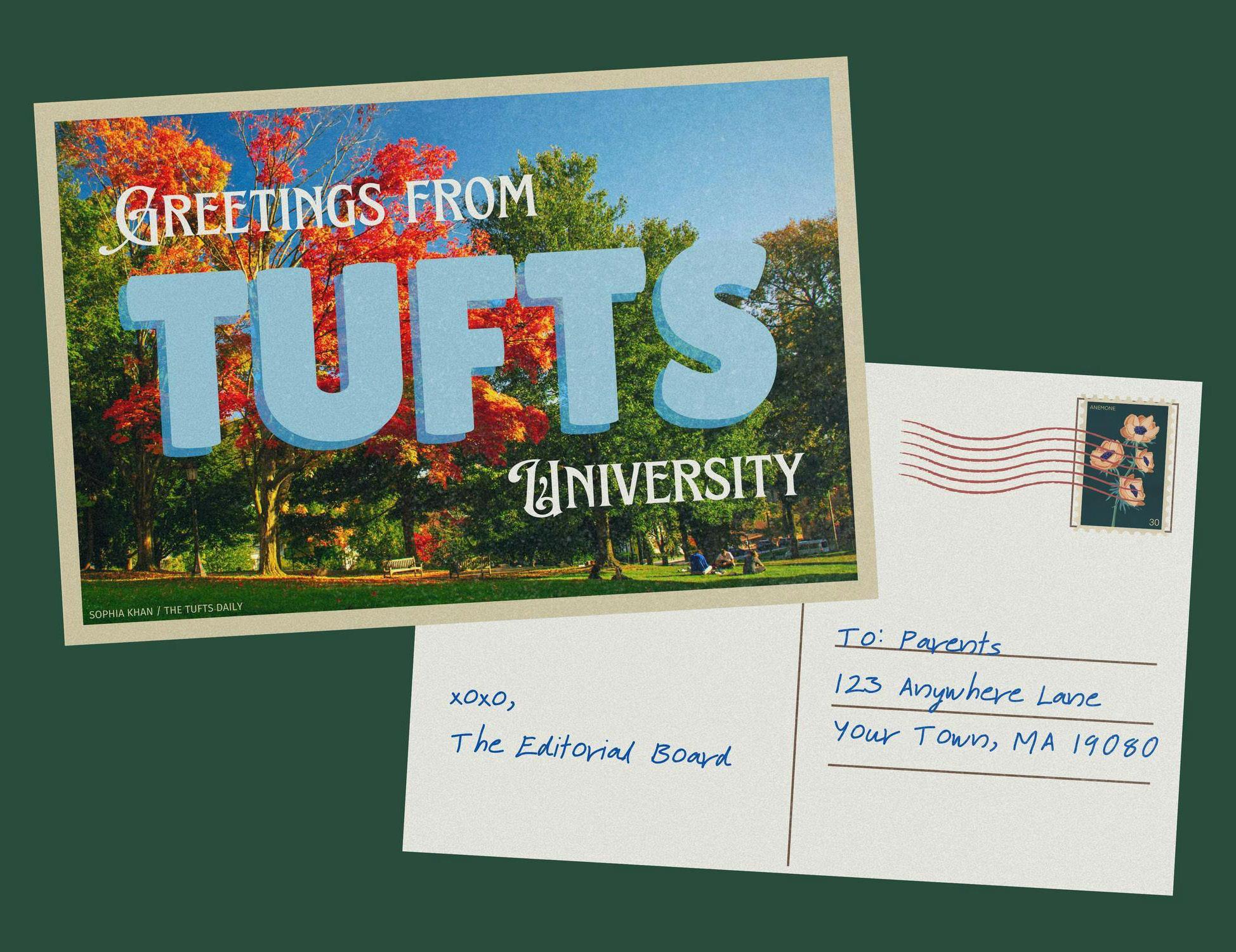
If you’re reading this, you may be a parent or guardian of a Tufts student. Maybe you’re even the parent of a first-year, in which case this letter could possibly help you all the more. Or possibly you’re just a Tufts student trying to spy. Whatever the case may be, your child’s transition to college is certainly hard, and we feel for you. Remember, it’s hard for us too! As the Editorial Board, we hope reading the Daily can help you feel more connected to what’s going on in your student’s world. We can’t imagine going from seeing your child just about every day to hearing only their voice on the phone every so often or seeing them just when the semester ends.
And you just get thrown into the deep end.
One random day in the summer, it all just stops. When one editorialist’s mother dropped him off at Tufts, she cried so much in the Uber leaving school that the driver (who didn’t speak any English) pulled over to get her tissues out of his trunk. Rest assured though, it will start to feel normal. Maybe it already has — by the time this Parents and Family Weekend has commenced. When that very same mother was trying to comfort her friend about to drop off their own son, she said not to worry because “after a while [she] didn’t even miss him.”
We also sympathize with fellow students who do not have support from their families for
The Tufts Daily is a nonprofit, independent newspaper, published
The content of letters, advertisements, signed columns,
whatever reason. Entering college is difficult enough; doing so without parental guidance is even harder.
For most parents, after the first month and a half of school, there will come an exciting two days in which you will experience what it is like to be a student on the Hill: Parents and Family Weekend.
We hope that during Parents and Family Weekend you’ll see that our rooms are (relatively) clean and that we haven’t starved to death or frozen solid. We always welcome your help, but there are plenty of things we have to just figure out for ourselves.
Many of us experienced multitudes of identity crises throughout our first years … and second years … and every
EDITORIALS: Editorials represent the position of The Tufts Daily Editorial Board. Individual
Editorial Board. Editorials are submitted for review to The Tufts Daily Executive Board before
VIEWPOINTS AND COLUMNS: Viewpoints and columns represent the
Positions published in Viewpoints and columns are the
editorial discretion.
OP-EDS: Op-Eds provide an open forum for campus
the opinions expressed in the Op-Ed section do not necessarily
in length and submitted to opinion@tuftsdaily.com. The
appear in the Daily. Authors must submit their telephone
ADVERTISEMENTS: All advertising copy is subject to the approval
year. We struggled with finding good friendships, choosing (and rechoosing) our majors, and figuring out who we were outside of our hometowns.
These problems were ones that our parents couldn’t solve for us. But when we called them, they picked up and they listened.
We have found that independence, making our own decisions and living with them, is the key to confidence. Our parents don’t need to solve our problems for us. Your guidance comes best in the form of helping us develop a toolkit that we can refer to when we face our challenges. The support of parents, in that regard, is never-ending.
Parents, your kids still need you, they just need you in a different way. Gone are the days
of you managing our day-today — I mean, we got into Tufts; we should know how to complete our homework and do our laundry.
But for the big things, the more important things than homework and laundry, expect us to call. And if we don’t, please reach out. Our roles in each other’s lives are changing during this exciting period, not going away.
College is no doubt a time of growth. But growing doesn’t have to mean growing apart. After the 3 a.m. nights, the apple picking, the hour-long Green Line rides, the heartbreaks and the friendships, we’re still your kids. A couple months’ break from seeing you isn’t long enough for us to forget that.
Max Lerner Contributing Writer
Steve Jobs said that among the most impactful classes he ever took in college was a class on calligraphy. It may be easy to turn one’s nose at this statement, writing it off as foolish or performative, or conclude that Big Calligraphy lobbied Jobs to share it. It is especially easy to do so if one subscribes to the idea that all education must provide a specific set of skills that one can lift straight from the classroom to a job site — or at least a graduate school application.
In reality, despite its interface applicability, knowing the difference between serif and sans-serif fonts was not the first domino in a series of chain events that culminated in Jobs’ momentous success. Are we to believe, then, that he gained nothing from calligraphy? That his statement is a bald-faced lie, and that the only real knowledge is that which has direct application? Somewhere, a chorus of professors — teachers of English literature, foreign languages and philosophy — sing a resounding “no,” and I am inclined to agree.
There exists a great disparity between the phrase “taught what to think” and “taught how to think,” particularly in subjective situations. This distinction is often missed by those who fear indoctrination and weaponized by leaders who radicalize the fearful. The former would, in fact, classify as indoctrination, while the latter is the beating heart that keeps the humanities alive. STEM courses are meant to teach you what to think — they do so because there are singular correct answers and one must know how to attain them. They are completely objective, devoid of any
individual opinion. It is the subjective disciplines that teach one how to think; we would begin to infringe on individual thought as a whole if the former phrase reigned true.
When one is taught how to think, what lesson does that instruction impart? The humanities offer a modifier for the verb “to think” — specifically the adverb “critically.” The idea is that thinking, in its plain, unmodified form, is not sufficient to support reasoning and logic in subjective situations where there are no singular correct answers.
To think critically, one must draw thought from skepticism and a willingness to question. Critical thinkers do not merely examine the evidence put forth on their screens or papers; they also question the process that birthed the evidence. Critical thinkers assume inaccuracy until otherwise proven, a quality that is requisite in the creation of solutions or reaching distinctively defensible decisions.
Classes in the humanities and in STEM generally offer opposite methods of teaching. STEM classes teach skills applied to specific problem-solving contexts, where students implement various theories and principles into one universally correct and specific answer — essentially, what to think. Instruction in the humanities is quite the opposite. Professors provide specific contextualized perspectives by way of canonized literature, philosophical theories and socio-political histories. Students then enter the world with their Rolodex of general precepts from which they can craft their unique outlooks. In fact, while STEM disciplines draw their legitimacy from replication — the proving that no single answer is merely a “fluke” — humanities draw theirs from
the inherent impossibility of replication, the assurance that every person crafts their own critical thoughts for themselves. The alternative to this process is indoctrination.
The principles taught in STEM classes lead to scientific breakthroughs that echo the very institutions that nurtured those principles much more loudly than those in the humanities. It is thus no surprise that schools like Tufts have an overabundance of motivation to support STEM disciplines. However, ignoring the humanities is a dangerous game. Tufts is a small, liberal arts college in the Northeast — a breeding ground for dissonance, particularly in a political sense. When navigated with critical thinking, these instances of discord can be transformative and engender a more nuanced and politically aware society. Without this criticality, simple discords can escalate into division and resentment. Last year, we were inches of palpable tension away from conflict between protestors and police. To say that critical thinking and media literacy would have facilitated de-escalation is not to take sides or place blame, but simply to acknowledge the necessity and power of critical thinking. Political questions are inherently subjective and require critical thinking and extensive research to even begin formulating answers, let alone fully-fledged political stances or dissents.
To devalue the humanities is to restrict the development of critical thinking. Though it may appear trivial, there truly exists no greater opportunity cost or threat to our stability, both as a campus and as a world, than the loss of this integral skill.

Justin
Solis Rooted Reflections
What Tufts isn’t teaching (and what it should)
Every Tuesday at 1:30 p.m., I lead groups of prospective students around Tufts as a tour guide. Last week, I was asked “If you ran Tufts, what would you change?” At the time, I responded with a surface-level answer: streamlining class schedules. Yet this question sat with me throughout the rest of the week.
At Tufts, an emphasis is put on the “broader context.” How does this philosophy apply on a global scale? What does this change mean in the international sphere? Instead of missing the forest for the trees, I realized that we are missing the trees for the forest, and the trees may prove to be the most important part of all.
There is beauty in localization. Just as one has a special degree of familiarity with a childhood hometown, we have an opportunity to spend four years forming an intimate bond with our home in Medford and Somerville. I want to look back 10 years from now and smile as I recall the way the dew stuck to the leaves of a sugar maple on the banks of Mystic Lake or the story of how the Medford house nearest Tufts once served as a stop on the Underground Railroad.
This form of connection can only be achieved through an active desire to learn about the land and the local community — the type of education that Tufts is missing. How many environmental sustainability courses at Tufts teach that Medford has been recognized as a “Tree City USA,” a national recognition for commitment to trees and forests? How many students know about the Somerville TreeKeeper database that logs every single public tree in Somerville?
This is not merely an environmental struggle — how many history courses teach about how 63 Tufts graduates served in the Union Army during the Civil War, or that Andrew Carnegie paid $100,000 for Eaton Hall, a new Tufts library?
While there are courses at Tufts that incorporate local knowledge into the curriculum, these classes are few and far between. For example, Professor Benjamin Davies’ “The Deep History of Climate Adaptation” taught me that the powderhouse that gives Powder House Boulevard its name once held the largest stockpile of gunpowder in Massachusetts. Tufts does not exist in a void. There is a rich history embedded in the land it resides on, the people who once lived here and the local environment. While it is important to have a broader understanding of history, having intimate knowledge of the local area not only broadens one’s connection to the land, it also creates a level of commitment that is unmatched. Only once we understand what makes Tufts special can we understand why it is so important to ensure its protection.
The way courses are currently structured have forced us to look at the forest as a whole, leaving us unable to appreciate the simple, subtle beauty of a single tree. Tufts will always and should always emphasize a global perspective — I am merely insisting that our knowledge should be expanded to include local perspectives. Who has more appreciation for nature, someone who can only see the whole forest, or someone who can also appreciate every single tree that composes it? Tufts has only been teaching about the whole forest. Let’s start teaching students about the trees.
Nick Giurleo
Nick Giurleo (LA‘19) is an attorney, journalist and lifelong Medford resident.
This election day Medford residents will vote on three ballot questions determining the future affordability of the city. If the referenda are approved, the City of Medford will be authorized to assess an additional $7.5 million in property taxes and fund an estimated $30 million bond for a new fire station. While these issues, at first glance, may seem distant from the everyday struggles of the average Tufts student, trying to keep up with courses and navigate the social rollercoaster of college, approval of Questions 6, 7 and 8 will have a direct impact on them and the community in which they live.
The measures are up for voter consideration thanks to a state law called Proposition 2 ½. This law prevents a city or town from raising taxes more than 2.5% of the total value of all real and personal property in the community in one fiscal year, and was designed to protect residents from an unsustainable tax burden. An “override” allows municipalities to surpass the 2.5% cap, but only after direct approval from the voters. The effect is a permanent increase in taxes. A debt exclusion is another method of surpassing the Proposition 2 ½ limit, but debt exclusions impose a temporary tax increase. Never since Proposition 2 ½ was enacted, in 1980, has Medford allowed the city to surpass the statutory cap.
Deplorably, the campaign to vote yes on Questions 6, 7 and 8 has turned to misinformation to portray the over-
rides and debt exclusion as an “investment” in Medford. It has resorted to scare tactics to convince residents that voting no on the tax increases will have disastrous consequences — the campaign paints apocalyptic pictures of pink slips, underfunded schools and roads in permanent disrepair — while providing no data substantiating how this would occur. They claim the measures are needed, for example, to keep teacher salaries competitive, when the latest Massachusetts Department of Education data shows that the average Medford teacher salary in the district is already at a competitive level, in relation to the salaries of teachers in other communities across the state. They also claim there is no other way to meet the city’s alleged funding needs. Yet supporters discount the millions of dollars in “free cash” — or over-budgeted money certified for use by the Massachusetts Department of Revenue — that Medford could tap into before imposing a hefty tax burden on residents suffering under a historic cost of living crisis. According to the latest data from the Department of Revenue’s Division of Local Services, the City of Medford has over $25 million in free cash available for use. This does not include the millions of dollars more, accounted for in the course of the last fiscal year. Supporters disregard new tax revenue that could be raised through an approach focusing on economic growth. Many have argued Medford Square and other hubs of the city have long stagnated, with promises to revitalize them through development
and other initiatives remaining unfulfilled year-after-year. Medford’s stagnation has stood in stark contrast to its booming neighbors of Somerville and Cambridge, whose promotion of growth-centered development has led to expansions of their respective tax bases and corresponding increases in tax revenue.
Further, the “yes” campaign’s calculation of an average estimated impact of less than $38 a month is a gross underestimation of the actual likely impact on tax-paying property owners. It undervalues, for example, the extent to which real estate values across the city have risen in the past year. It also understates the actual cost of the debt exclusion which will also include payment of interest and bank fees. According to the former superintendent of Medford Public Schools, property owners in Medford are actually likely to see an increase of 10% or more when they receive their next tax bill, if the ballot measures pass.
Perhaps most concerningly, the voters hardly know what they are voting on. None of the questions provide any specifics on how the money that the city is seeking to appropriate will be allocated on a line-item basis. Some voters, for example, have mistakenly come to believe the override funds will be used to construct a new high school in Medford, which they, in fact, will not, because the projected costs of a new high school far exceed $7.5 million (and are actually in the neighborhood of $200 to $400 million according to another estimate). That
Medford firefighters — the very beneficiaries of a new fire station — do not support the debt exclusion, which is conveniently brushed aside as well. International Association of Fire Fighters Local 1032 has come out against the debt exclusion, pointing out how the union was left out of the design planning process and that the $30 million bond will not be enough to cover the needs of a modern station. They have also echoed concerns of affordability, putting as they always have, the greater good for Medford residents before themselves. Given the enormous sums of money asked for, Medford voters deserve to know where every dollar is going before they say yes. To ask them to blindly trust their leaders and vote otherwise is no better than fraud.
The reality is that approval of Questions 6, 7 and 8 will seriously hurt affordability and the economic diversity of Medford.
Despite Mayor Breanna LungoKoehn’s claims that she supports diversity, equity and inclusion in Medford, she has come out in full-fledged support of approval of the Questions. Progressives on the Medford City Council and School Committee make the same claim yet overwhelmingly support a “yes” vote as well.
The administration and other supporters ignore the obvious reality that communities which become more expensive to live in result in exclusion of vulnerable groups who are disproportionately lower income. For individuals who live on fixed incomes, like adults with disabilities and senior citizens,
A strong solar storm made the northern lights visible at lower latitudes than usual on Thursday night. The Daily’s editors caught a glimpse of the aurora from the Greater Boston Area. Scan the QR code to see more.
unexpected higher costs could force them to forgo necessities, such as food and prescription medications. The impact on Medford businesses cannot be ignored either. The small businesses in and around the Medford campus will be harmed if the referenda pass, likely resulting in higher prices passed onto their customers and cut hours and lower wages for their employees. With free cash reserves, opportunities for growth and other methods to reallocate spending and raise revenue, taxation should be Medford’s last resort — not its first.
Especially pertinent to Tufts students, many of whom pay rent, the campaign in favor also ignores the likely impact on renters. When property taxes go up, landlords pass on the added costs to renters. The effect of this is higher rents, which will only exasperate the affordable housing crisis the Tufts community and country at large face. Even though property taxes are at issue, renters have a significant stake in the outcome of the November votes.
The future of Medford is on the line. Tufts students are an integral part of Medford and make a difference when they speak out. It is therefore important that Tufts students, despite busy schedules and their limited time in Medford, take an active role in Medford politics. They can do this by supporting an affordable and inclusive city. They can do this by identifying and correcting misinformation. Most importantly, they can do this by supporting the vote no campaign on Questions 6, 7 and 8.


in good faith, with many people arguing that he is simply not prepared for the leap toward the NBA level and that his abilities as a basketball player could ultimately be higher had he spent a few years developing his game at USC.
While simply playing with his father was his initial goal, one for which he worked his entire life, Bronny now stands at the foot of a much more difficult mountain to climb: proving he belongs in the NBA. I believe that he can attain this, but it will require a tremendous amount of work to succeed. Bronny could end up as a good backup point guard, akin to a Davion Mitchell — a quick defender with good length and athleticism, and a solid-enough three point shooter. If he can raise his level significantly, he has the potential to be of value as a role player.
While some may believe that Bronny can unlock this next level in his game, there are legitimate doubts about his actual talent. Bronny simply does not look like an NBA player, averaging a measly 0.7

points, one rebound, one block and 0.3 assists in 11.9 minutes per game during the preseason. He plays timidly, uninterestedly meandering in to help defenders, filing dejectedly into the corner while throwing side glances at the bench players
whose minutes he steals. Tragically, he has internalized the imposter syndrome generated by his unique circumstances.
Yet I always think back to that night in Chatsworth. I remember what I saw, what I witnessed
with my own eyes. It was legitimate basketball talent. Bronny’s success will inevitably come down to something nepotism and his namesake cannot provide him with: the determination to prove his doubters wrong, a tendency
that his father epitomizes better than maybe any athlete. If Bronny is wired in any way like LeBron, he can succeed, and if he does, nobody will ever criticize the Lakers’ decision. As long as Bronny proves that he has the integrity to live up to his role as a player on the Lakers, it does not matter how he acquired that position.
There is also a real possibility that Bronny is unwilling to put in the necessary work to maximize his potential, and the decision to draft him will look worse and worse by the year, permanently painting him as a nepo baby who never truly deserved his spot. Bronny may never become an independently contributing player. He may remain unplayable for his entire career, keeping roster spots only on his dad’s teams.
On Tuesday, LeBron James Jr. will begin his path toward proving that he is his father’s son. Bronny will drape himself in the esteemed Lakers’ purple and gold, perhaps holding himself to be the spiritual heir of his father’s legacy.
It is his burden alone to prove that he is no more than a jester.
Legacy can be tricky. In any field, when your name carries weight, the expectations that come with it can be suffocating. But in sports, it’s a different kind of pressure. It’s not just about living up to the name on your jersey, it’s about expanding upon the greatness that you inherited.
A handful of fathers and sons have managed to meet, and even exceed, that impossible bar. These are dynasties that span decades, creating highlights that transcend eras. These families have defined what it means to build a legacy that has been talked about for generations.
The Griffeys
Ken Griffey Sr. was a respected player long before he shared the field with his son. As a key cog of the Cincinnati Reds’ “Big Red Machine,” he helped secure back-to-back World Series titles in 1975 and 1976. His career was a model of consistency: He commanded a .296 batting average, over 2,100 hits and three All-Star selections. During his peak in 1976, Griffey Sr. hit .336 for the season, a close second to the National League batting title.
It was his son, Ken Griffey Jr., who took the family legacy and turned it into a phenomenon. By the time he retired, “the Kid” had become one of baseball’s all-time greats with 630 home runs, 2,781 hits and 1,836 RBIs over 22 seasons. Known for his smooth swing and stellar defense in center field, Junior blew past all expectations. He won 10 Gold Gloves and was a 13-time AllStar, adding a 1997 AL MVP to cap off his Hall-of-Fame resume.
But Griffey Jr. was more than numbers. He was cool. The backward hat, effortless swing and infectious love for the game made him a hero to a generation of fans.
He was baseball’s icon, with his own Nike shoe and even a video game. He brought a swagger to baseball that it desperately needed, and his influence extended beyond the diamond.
The iconic moment came in 1990 when both Griffeys suited up for the Seattle Mariners.
In a Sept. 14 matchup with the Anaheim Angels, they created the most unforgettable fatherson moment in sports history by hitting back-to-back home runs.
In the top of the first inning, Griffey Sr. launched an 0–2 pitch over the left field fence for a tworun homer. Four pitches later, Junior blasted an opposite field bomb of his own. They remain the only time a father and son have hit back-to-back homers in MLB history.
This moment perfectly encapsulated what the Griffeys repre-
sented: shared greatness, family legacy and pure joy for the game. Together, they combined for over 4,900 hits and 782 home runs, but nothing quite tops that night in Anaheim.
The Hulls
In hockey, few names are as synonymous with scoring as Hull. Bobby Hull, known as “the Golden Jet,” was one of the National Hockey League’s first true superstars. With his blistering slapshot and unmatched speed, Hull revolutionized the game during his time with the Chicago Blackhawks, amassing 610 career goals and winning the Hart Memorial Trophy as the league’s MVP twice. He led the NHL in points three times and was the top goal scorer seven times.
His son, Brett Hull, took his father’s legacy and pushed it even
further. Known as “the Golden Brett,” like his father, Brett was a goal-scoring machine. Over his 19-year career, Hull racked up 741 goals, placing him fifth on the all-time list. His greatest season came in 1990–91, when he scored 86 goals, ranking third most all-time in a single season, earning him his own Hart Trophy.
The Hulls are still the only father-son duo to both win the NHL’s MVP award. Though they played in different eras and brought their own unique styles to the ice, together, they combined for more than 1,350 goals, cementing their family name as one of the greatest in sports.
The Mannings
The Manning family legacy in the NFL begins with Archie Manning. Drafted second overall in 1971, Archie spent most of his career with the New Orleans

Saints, enduring losing records in each of his 13 seasons. His ability to scramble out of his often poorly protected pocket earned him two Pro Bowl selections in 1978 and 1979. However, perhaps Archie’s most impressive accomplishment is the football dynasty he created, with two of his sons surpassing his own achievements.
Peyton Manning, Archie’s middle son, rewrote the record books. Drafted first overall by the Indianapolis Colts in 1998, Peyton won an NFL-record five MVP awards, led two franchises to Super Bowl victories and retired after 17 seasons as one of the most decorated passers in league history. His command of the offense earned him the nickname “the Sheriff,” and his 539 career touchdowns and 71,940 passing yards place him among the greatest quarterbacks ever.
Eli Manning, also a first overall pick, made his mark in high-pressure situations. Though not as dominant in the regular season as his older brother, Eli’s legacy was made in the postseason. He led the New York Giants to two improbable Super Bowl wins, both against the dynasty of the New England Patriots, earning the Super Bowl MVP honors in each game. His iconic pass to David Tyree in Super Bowl XLII, known as the “Helmet Catch,” became one of the most unforgettable moments in NFL history. Manning finished his career with 57,023 passing yards and a legacy as one of the most clutch performers in Giants history.
And the Manning saga isn’t finished. Arch Manning, Archie’s grandson and the next in line, is currently playing quarterback at Texas, continuing the family’s legacy and hopefully setting the stage for another generation of Manning quarterbacks.
Sarah Firth Staff Writer
Paul Juda won a bronze medal at the Paris Olympics with the U.S. men’s gymnastics team this past summer, alongside his teammates Stephen Nedoroscik, Frederick Richard, Brody Malone and Asher Hong. Their efforts ended a 16-year medal drought for the American men’s team. Juda, a native of Deerfield, Ill., also competes for the University of Michigan Wolverines, where he has won three individual NCAA championships. He is touring around the country with Simone Biles’ Gold Over America Tour, which stopped in Boston on Oct. 6 and 7. Juda sat down for an interview with the Daily before the Gold Over America Tour stopped in Boston.
Editor’s note: This interview has been edited for length and clarity.
Tufts Daily (TD): What has it been like to be on tour?
Paul Juda (PJ): I got invited for the Gold Over America Tour the second day of Olympic Trials. I think the best part about the tour is twofold. It comes first with the crowd, that we have almost 10,000, 11,000 people coming to watch us and it’s packed like sardines.
The second part, obviously, is the people that we get to spend it with. Every single guy on that team is really, really close. We’re getting closer every single day. We’re spending a lot of time together. We sleep in these bunks on the sleeper bus; we’re on the bus like 14, 15 hours a day. It’s fun.
Every single competition, you go there and you dap up a guy, and you say, “Hey, how’s it going?
Hope you’re feeling good.” But, at the heart of it, you’re like, “I still want to beat you, I’m here to try and win a competition.”
So, for this, it’s kind of like “Hey, how are you doing today? You’re doing good, great. Let’s put on a great show.” So, I think the best part is the crowd — to be able to put on that kind of show — and definitely the people we’re spending it with.
TD: What was it like representing your country at the Olympics?
PJ: It’s a dream come true. I was kind of the guy that was on the outskirts and looking in. To have my family there and my friends, to have such a successful meet and to have a medal and to watch the medal get brought to you on a silver platter … you’re like, “This is huge!” I think that’s going to always be burned into my memory. That is the best time of my life. When the flag was getting raised, I know it wasn’t gold, but it felt like it in that moment. We put gymnastics back on the map.
TD: How do you balance your academic responsibilities with your athletic responsibilities as a student-athlete at Michigan?
PJ: When I’m in the classroom, I’m going to be fully in the classroom. I’m not going to slack. I’m not going to miss class if I don’t need to for athletics. And when I’m in the classroom, I’m pushing hard. I want to educate myself, and I want to learn what this university has to provide for me. I pride myself on going to the University of Michigan; it’s a tough school with a lot of really smart people. There are a lot of really, really difficult classes that you don’t just get to slap through.
Two years ago, on a rainy night deep in the San Fernando Valley, I went to watch Bronny James play. That year’s Sierra Canyon team was notably worse than those of years prior. Bronny was the only all-American on the team and the only upperclassman with real NBA potential. In previous years, he could hide behind his NBA caliber teammates, but not that year — this was his team. That night, Bronny threw down a powerful between-the-legs dunk in game — his most famous highlight to date. While throwing an eastbay in-game is not a guarantee of basketball excellence, I would argue that it does show a brilliant flash of raw talent. A talent which, given Bronny’s 6-foot-2 frame, was truly remarkable. Whenever anybody speaks to me about Bronny’s lack of talent, or says that his position in the NBA is solely a result of nepotism, I think back to this moment. That night, I left the gym certain of his basketball potential.

I’ve always believed that being a student-athlete comes with a dual title: You are a student and you are an athlete. But, I also believe that if you want to achieve excellence, you have to be great in all avenues that you pursue. So for me, school is one of those places where you have to be diligent and you have to be pushing forward.
TD: Do you plan to continue training and competing in elite gymnastics?
PJ: I don’t know, we’ll figure that one out… I’m taking it one day at a time. Sometimes, I teeter-totter, but I’m taking my time. I really like this tour, and I really like the NCAA season, and I really just want to finish that on a high note.
TD: How do you think the recent popularity of men’s gymnastics will affect the future of the sport?
In Bronny’s first month at the University of Southern California, he suffered a life threatening cardiac arrest, putting his dreams of playing alongside his father into real jeopardy. This moment demonstrates a significant, intangible trait — Bronny’s resilience and actual determination to succeed and live up to the expectations of his birthright. To play basketball again, let alone work towards training for an NBA season after nearly dying in practice, requires something deeper than simply having LeBron James as your father. But it is also true that any other All-American in his position would have stayed at least another year or two in college, especially after missing most of his first-year season due to health circumstances and subsequently playing fewer minutes. Per game, Bronny averaged 4.8 points, 2.8 rebounds and 2.1 assists in 19 minutes — stats which indicate that his development has been deeply altered by the setback. Thus, these doubts about his development trajectory are often made
PJ: I have no idea what it’s going to do right now. I would love to see, in the beginning, at least some of this attention translated into younger gymnasts starting the sport, and younger gymnasts pushing club gyms to stay open and not have to close down, and then those club gyms have more influx of boys at the high school level, and then more high school level boys being able to be like, “Hey, I want to go to college for this.”
In a follow-up email to the Daily, Juda commented on the role his parents have played in his career.
PJ: My parents have been the sole reason for my success in life. My parents are both immigrants from Poland. They came here with the dream and aspiration to make life for their kids better than the ones they had when they were growing
up. For me, my parents made the ultimate sacrifice by trying to start a new life in a new world with a language they knew little to none of. They worked their entire lives to provide for my siblings and me. And they showed me what the term “hard work” really means. Whenever I get sluggish, or I have a blip in my motivation, I remember that my parents worked too hard for me to disregard their sacrifices. I love my parents with my entire heart and they have always been the ones that tell me to just do gymnastics as long as I love it. They’ve never expected anything of me and have only been supporting role models for me. Regardless if I won the competition or if I came dead last, my parents’ love for me was never in question and I think that’s what’s allowed me to succeed!
